by Alex Hutchinson
Explores how the mind and body’s perception of limits influence physical endurance. I thought the book was way too detailed for the lay reader.
by Alex Hutchinson
Explores how the mind and body’s perception of limits influence physical endurance. I thought the book was way too detailed for the lay reader.
by Warren Zanes
Very interesting book the making of Bruce Springsteen’s landmark album, Nebraska.
by David Halberstam
Entertaining story of the World Series race in 1964, primarily between the Cardinals and the Yankees.
by Ryan Holiday
Ego is the enemy.
by Nick Hornby
Not as good IMO as High Fidelity, but I still a really good read.
by Haruki Murakami
Good read.
by Jay Solomon
The complicated behind the scenes battles between the US and Iran.
by Nick Hornby
Very entertaining novel. I will definitely read more of his work.
by Patrick McEnroe
I fitfully entertaining book about McEnroe’s days as a professional player and commentator.
by Ira Waglar
Interesting book about a boy/man struggling to come to terms with his Amish upbringing. Even more interesting to me since we just visited Lancaster.
Two woman’s story of their time in Evin Prison after being arrested for promoting their Christian faith. Horrifying tale; a bit repetitive.
by Rex Chapman
A highly entertaining autobiography of near-great basketball player, Rex Chapman. Tells the tale of his extraordinary basketball talent, unusual drive, and his decent into gambling and drug addiction.
by Robert Coram
This book was a fun read for me since I grew up on Marine bases.
A few items I want to remember:
by Ralph Steadman
On the the one hand, it was fun to read the stories behind Thompson’s great books. One the other, Steadman’s attempts to mimic Thompson’s Gonzo style were a little cringe inducing.
by Cal Newport
Basically says frantic activity is not the same thing as being productive.
by John Feinstein
Pretty entertaining book about players, coaches, and umpires stuck either in the minors or shuttling back and forth.
by John Wooden
by Anne Somerset
I agree with this reviewer on Amazon.
I truly wanted to learn more about Queen Elizabeth I and her reign, and was willing to take a summer to read this book.
Alas, this is a book of history written by an accountant. There is no intrigue, no battle, no war, no romance within that has not been reduced to a long, drawn-out bloodless pedantic bore.
by Joan Didion
Her ruminations about her husband’s death. I really don’t know that the fuss is about Didion. I find her writing annoy.
by Zachary D. Carter
The life of the economist John Maynard Keynes. Sort of a combo of the life of Keynes, and more importantly, the life of his ideas. Not the easiest read, but a good read.
by
Pretty good book about the horrible relationship between Plath and Hughes. To me it bogged down a bit because of some academic or too cuties language.
by Laurence Bergreen
Engrossing read.
by Ryan Holiday
by James Clear
A guide to developing better habits.
by Julia Baird
Very good bio of Queen Victoria (and a lot about her husband, Prince Albert). A very good read, until towards the end, when for me it lagged a bit.
by Kevin Baker
A sporadically entertaining book about the history of baseball in NYC. Too long. Ends weirdly.
by Marc Meyers
Marc is a pretentious name. Anatomy of a Song is a good book though. Consist of short antidotes about 45 mostly classic rock-n-roll songs, mostly the sixties and seventies. Lots of short interviews with the songwriters, producers, musicians. Two thumbs-up. Entertaining.
by Jimmy Carter
Amazing man.
by Ryan Holiday
A thoughtful look at how the Stoic philosophy can be used by everyday people in everyday life. I would guess the book is criticized for oversimplifying both the Stoic philosophy and what it takes to overcome life’s many obstacles. And there’s probably some truth to that. Still, I think the book is more than worthwhile read.
by Randall Balmar
I really liked this book about my hero, Jimmy Carter. Yes, it’s another bio of the great man, but is unique in it’s focus on the evangelical angle. Balmar tries to understand how the evangelical movement, the Moral Majority/Religious Right, sought to bring Ronald Reagan to power as a result of their (ridiculous) beef with the IRS, and their strategy of using abortion as a red flag to rile up their poorly educated followers. A very effective strategy that we are still paying for to this day. God help us.
by Woody Allen
Allen’s autobiography. Very interesting read.
by Mikhal Dekel
Story of Polish people driven from their homes by the Nazis during WWII. They travel first to Russia, then exiled to gulags in Siberia. Some ended up as refugees in Iran, then finally to Palestine.
by Stephen Ambrose
The book the well-known TV series was based on. Good book. One criticism would be that he uses some military jargon that I had to keep looking up.
by Maria Bramford
funny.
by John Krakauer
Shocking tale of a murder perpetrated by a couple of brothers, both Mormons who felt that “god” commanded them to do it. Book give a good sick Mormon history.
by J.R. Moehringer
Moehringer was the ghostwriter for Agassi’s book, Open. Since he told such a good story with that, I thought I’d give his own autobiography a try. I thought it was a little, ok a lot, slow.
by Andre Agassi
Certainly one of the best autobiographies I have ever read. “Open” is a great title. He’s is so open about his shortcomings and issues. Really remarkable. The ghostwriter – JR Moehringer – really made it come alive.
by Mike Rothschild
After reading this, I understand why the Alt-Right is always going on about Soros, Globalists, and “The Illuminate.” All that is just the continuation of hundreds of years of Jewish conspiracy theory. Nothing new, just the continuation of ancient craziness.
by Gregg Herken
In the years after World War II, Georgetown’s leafy streets were home to an unlikely group of Cold Warriors who helped shape American strategy. This coterie of affluent, well-educated, and connected civilians guided the country, for better and worse, from the Marshall Plan through McCarthyism, Watergate, and Vietnam. The Georgetown set included Phil and Kay Graham, husband-and-wife publishers of The Washington Post; Joe and Stewart Alsop, odd-couple brothers who were among the country’s premier political pundits; Frank Wisner, a driven, manic-depressive lawyer in charge of CIA covert operations; and a host of other diplomats, spies, and scholars. Gregg Herken gives us intimate portraits of these dedicated and talented, if deeply flawed, individuals, who navigated the Cold War years (often over cocktails and dinner) with very real consequences reaching into the present day. Throughout, he illuminates the drama and fascination of that noble, congenial, curious old world,” in Joe Alsop’s words, bringing this remarkable roster of men and women not only out into the open but vividly to life.
by Walter Iaascson
This book didn’t really change my mind about musk. Remarkable man, huge asshole.
I guess I do appreciate what he accomplished a bit more.
Good read, but not Iaascson’s best. Lags towards the end.
by Nathaniel Hawthorne
Pretty good 🙂
by Arnold Schwarzenegger
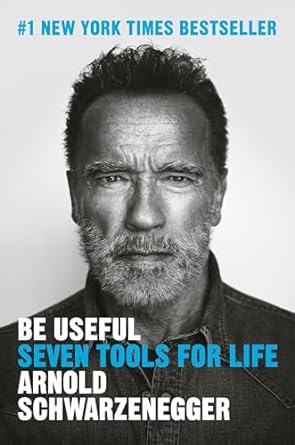
By Susan Cheever
A short history of the intellectual capital of the USA, Concord Massachusetts when Emerson, Thoreau, Hawthorne, Louisa Alcott, and others made it their home.
Cheever have a light and breeze style, makes for easy reading. Enjoyed this book, although I don’t think anybody would take this book to be the definitively bio of the time. But it was a fun high-level overview.
by Lew Freedman
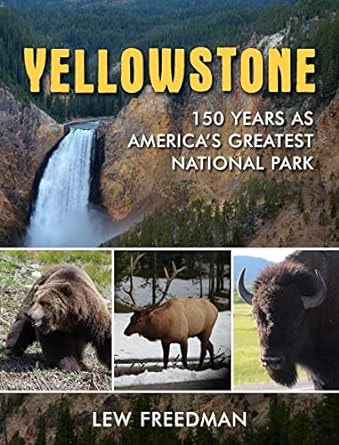
by Henry David Thoreau
I travelogue on his three trips to Cape Cod. Not essential reading, but interesting.
by Phillip Norman
A so-so biography of George Harrison. While it’s a brisk and engaging read, it also superficial. I didn’t find the author very insightful in regard to the Harrison the artist. It reads more like a chronological summary of newspaper articles and books about Harrison and the Beatles.
by Susan Cheever
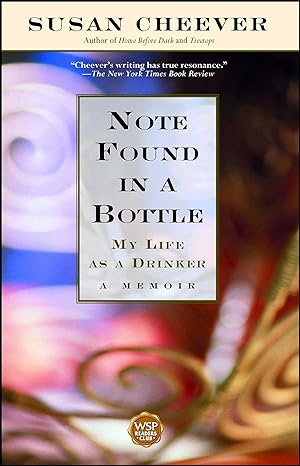
Cheever knows how to keep a story moving. A fun, brisk read about a life and family disrupted by alcohol.
by Mieko Kawakami
Interesting novel about two misfit middle-school students.
by Jessica Pan
Great book about the difficulties of being an introvert, and strategies for “overcoming”.
by Geoffrey Best

Boring, extremely long paragraphs, and lots of British terms that aren’t familiar to an American.
by Mieko Kawakami
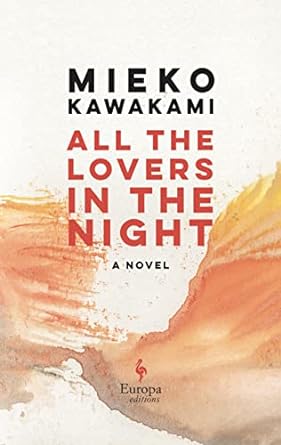
by Jimmy Carter
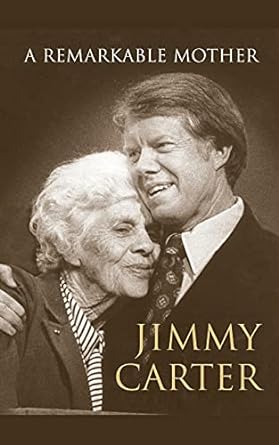
by Jonathan Alter
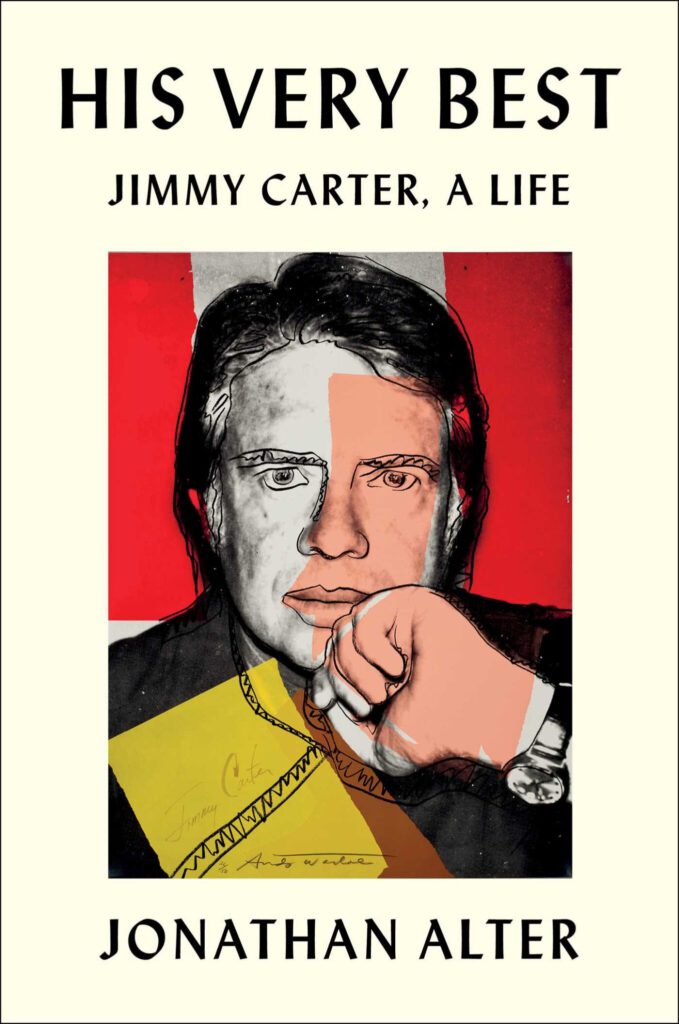
Miss Julia assigned Carter warranty’s to read in fifth grade
The Carter’s got electricity in 1935 and his father purchased a windmill with an elevated water tank and pipes so they could have running water period
With Earl’s encouragement, Jimmy learned to be a tireless entrepreneur when he was 6 years old period before long he earned more than many grown men in the area, who lived on less than $1 a day period Jimmy picked peanuts off the Vine and stack them in his little wagon, wash them, and soak them overnight period at the 4 o’clock he rose to boil the peanuts and fill 20 paper bags with a 1/2 pound each period then he pulled the wagon down the railroad bed 2 miles to plant to sell his wares-5 cents a bag-out of the wicker basket on Main Street period some of the men at the filling station like to eat their penis with their dopes, which is what cokes were caught then called period then he began learning about the world beyond his family the black workers killed for Quote impudence boarding on assault closePage 47
And somewhere around 86, and already wilful Jimmy decided he wanted to be not a farmer like his father or one of the other ambitious ambitions of kids as age, railroad engineer, cowboy, FBI agent, John Dillinger-but to go to Annapolis to become a naval officer the discipline, drive, and exceptionally broad horizons he developed and the navy would make everything in his future possible
Jimmy enrolled at Georgia Southwestern college a 2 year junior college in America’s
In early 1942 Congressman pace refused once again to recommend him for the Naval Academy period this time, though, Mr. Earl stubbornly refused to leave paces America’s porch until he had a more definitive answer about his boy’s future pace promised an appointment the following Spring if Jimmy took math and science classes that weren’t available at George’s Southwestern period that led to a year at Georgia Tech and acceptance to the naval reserves officers training corps periodPage 51
Carter entered Annapolis in 1943 Roosevelt had signed it order saying that all midship and must complete their studies in 3 years instead of 4 because of the war Invictus invictus written by English poet William Ernest Henley one of his favorite points
Page 55 story about the incident at Annapolis when Carter refused to sing marching through Georgia even though he was punished Extensively by the upper classroom
Concerning the first black to come to Annapolis, page 57 period Carter did the right thing, but more quietly period the price was higher for him because he was a Georgian period he was treated as if he were a trader for his lining up with brown supporters, a classmate, Walter moiley, recalled
Carter graduated number 60 out of 820
Separation of church and state was the Central tenant of Roger Miller Baptist church
Williams thought church and state should be separate to preserve integrity of the church. Unlike Thomas Jefferson who would follow, Williams did not wish to separate church and state primarily to preserve the peace and purity of the state but rather to preserve the peace and integrity of the church.
When the Georgia General Assembly was in session, Jimmy bumped at a cheap hotel and rose at 430 to begin preparing period he arrived at the gospel before 7-earlier than any colleague-and he worked 5 days when most of the rest put in 4 period page 122
Carter took a speed reading class at Georgia Southwestern to help him fulfill what he ruefully called his foolish promise to read every bill in his entirety before voting on it-a daunting task when about 12:00 bills reach the floor every year period page 122
The following weekend, Carter recalled being sickened at the George Georgia Tech football game when some fans booed during a moment of silence for the slaying president Kennedy
When news of JFK’s assassination was announced in chips classroom at plains high school, the teacher said good and the teeth students supplied in period chip picked up a chair and flew it at the flung it in the teacher’s direction period and the principal’s office, Mr. Sheffield expressed his sympathies over the president’s death and sent him home, where Jimmy and Rosen declined to punish him periodPage 126
Jimmy reminded the congregation that black worshippers had previously been admitted to the church for funerals-including that of his father-and other special occasions period this is not my house: this is not your house he said period here and they could keep anyout of their house if they wanted period but I for one will never stand in the door of this church and keep anyone out period page 129
Carter jumped into the race just 12 weeks before the September democratic primary period from the start, he ran a discipline, ideologically hazy campaign focused on integrity and reform-a pattern for the future period but there were signs of his inner progress of struggling to get out period without drawing attention to it, he accompanied a bit in black churches-one of the first times in a white statewide candidate in Georgia did so period page 134
Little Lillian Carter joined the Peace Corps when she was 67 years old it was sent to India a village near Bombay page 134
Carter came to believe that no other human being had affected his career more profoundly we’re beneficially than Hamilton Jordan period page 136
Lester Maddox A Democrat and a major racist, ended up winning the raceA Democrat and a major racist, ended up winning the race.
Carter called the book Ryan hold nibura on politics his political Bible period page 140
Carter felt he couldn’t easily do missionary work in Georgia, where he had become well known, so in May 1968 he joined a lay mission team for 2 weeks in lochaven, Pennsylvania, an industrial town in the mountains period page 1 41 3Page 143
When the Carter’s worked as a team-as they would for the rest of their lives-they also embodied the ideals of rosalynn’s original creed: methodism, inspired by founder John Wesley’s admonition to quote do all the good you can, to all the people you can, as long as you as long as you as long as ever you can period closeQuote page 146
David rabhan he drove quarter to campaign appearances in his cesina 310 twin-engine pro plane.
He once turned the fuel line switch off while Carter was driving as a prank period.
Carter never had a campaign Manager. Jodie Powell started as his driver Carter would leave him if he got up too late. Was expelled from the Air Force Academy for cheating. He was a doctorial candidate at Emery.
I eventually became his press secretary.
During his campaign for governor Carter offered what would later be caught dogwhistles: code words such as George’s heritage law and order local control and respect for government Wallace that sounded innocuous on the surface of its signal to white voters that he was with them on racial issues he was an early master of the practice page 154
Carl Sanders law firm represented big and unpopular corporate interest, including Georgia power, and he had personal stakes in several of them period Carter picked up on a republican gym-cufflinks Carl-and it’s stuck, though Sanders didn’t wear shirts that needed them page 157
Carter curried favor of Harrison Griffin to the biggest segregationist in Georgia page 162
Copied above already
Culver kid was Carter’s adversary as a governor
Being governor brought out the exacting engineer in Carter-and the righteous Warrior period he would prove to be the greatest environmentalist governor in the country, but not before ALA80 many Georgians with his bold plan to overhaul state government period both experiences pre sauge what he would do-and what would be done to him-as president page 177
His nickname was jungle Jimmy
Carter was talking about carbon dioxide levels rising way back in 1972 nobody else was paying in a sectionAttention
Carter pushed through a gigantic reorganization of state government in Georgia it saved them millions of dollars for example they could now issue general obligation bonds which save them a lot of in interest costs page 182
The chattahoochie river became one of the Carter’s greatest legacies he protected at page 183
Carter was one of the first to take on the army corps of engineers because he thought they were building way too many dams that were unnecessary page 184
A Congressman wanted to build a dam on the Flint river period before making a decision-Carter Canoe down the river twice and made a point of learning all about the indigenous showbass otter blocks muskrat beaver and Bobcat that would be affected by the dam he devoted more than a 100 hours of his time to meeting with dozens of groups on both sides for concrete manufacturers to fly fishermenEdit a video again
Carter passed a bill that said all 57 miles of the chat to tahuga river could not be d*****Page 186
Carter would sometimes ride around the state please and they would pull cars over that were speeding above the 55 miles an hour limit so that Carter could personally lecture them p 188
Carter joined the anybody but govern effort saying that government would lose every state in the South
For a while Pat Cadell would be Carter’s advisor he would go on to coach Gary Hart Joe Biden Ross perro and eventually Donald Trump on how to appeal to disaffected voters page 197
When Jimmy told his mother he was preparing to run for president, lily and replied, president of what? Page 199
Carter rewrote the speech he gave for the famous law day because he thought the original one he had sounded too much like Kennedy’s period so we rerouted on the spot period
The law day speech was nevertheless an instant classic, and for the next 2 years, Thompson played the 45 minute tape dozens of times for people who would look at me like I was finally over the hump into terminal brain damage period of course people listen anyway because a hip, often cynical celebrity journalist was telling them that this obscure governor had something important to say period it’s hard to exaggerate the boost Thompson gave Carter with the young reporters he would need to take him seriously as a presidential candidate period page 208
Jimmy Carter was a famously Unlucky president period but as a presidential candidate, he caught many breaks period
The first was that the smiling Sunday school teacher seemed perfect in a doubt to the scowling quote who had just left office period
Outsider themes were in the air in the mid-seventies period
Billy Carter said my mother went into the Peace Corps when she was 68, my one sister is a motorcycle freak, my other sister is a holy roller evangelist, and my brother is running for president period I’m the only same 1 in the family period page 217
Hamilton Jordan believe the candidate’s secret weapon was the variety of his life experiences he could talk commodity prices with I will farmer’s, d*** construction with New Hampshire environmentalist, navy traditions with veterans, and the teaching of Jesus with the rule Bible belt democrats women’s groups thrilled to the idea of miscellaneous being freed by the early death of her husband to build her own life of adventure, while businessmen were impressed by Carter’s hard-nosed management of his company Miami Cubans cheered when he explained to them emphasis in Spanish, with a Southern accent) how is human right policy could end Castro’s domination of Cuba, and blacks loved hearing him use the cadence of a preacher to confess that he had lived his early life in Central segregation period page 218
Which of them noticed that Carter did especially well with children, who would rush towards him in a way that reporters had never seen while covering other politicians it wasn’t that Carter treated children as adults but that he treated both adults and children as children enveloping them with a smile and his message of goodness and love page 219
Ford said that dropping Rockefeller from the ticket was the worst mistake of his presidency page 228
Biden was the first senator to back Jimmy Carter page 233
He’s not a politician Charles kerbo reminded other aids in Atlanta as president he will do what he thinks is right, whether it’s popular or not, and if elected, he may be a one term president period page 245
Carter quoted Dylan during his democratic nomination acceptance speech We have an America that in Bob Dylan’s phrase is busy being born not busy dying
Carter said quote I feel like I have only one life to live-I feel God wants me to do my best I can with it period and that’s quite often my major prayer color let me live my life so that it will be meaningful period and I enjoy tackling difficult problems, and solving them, and the meticulous organization of a complicated effort period close Page 259
This was becoming known in theological and socio philosophical circles as the servant leader model, though a humble self as approach to social change was not normally associated with those at the very top period page 259
Carter aired the first Ever political TV ad in Spanish page 262
Today the playboy interview would likely be a 1 day story: even then, a more Teflon candidate like ground rag and might have let it slide right off him period but Carter had a Velcro quality to him the result of his righteousness and his inability to develop a casual disarming humor that so often accompanies political success the playboy embrogalio was the first was serious web search as Frank Carter to a smaller than life character and, as Charles KimKimberly feared, affects a semi permanent kick me sign to his posterior page 267
Over the summer Carter had bonded with James Dickey, the celebrated American poet Carter had been amused in 1972 and dickey, a Georgia native, showed up drunk to the first screening of deliverance now dickey became virtually the only one who’s debated vice he would welcome page 273
Martin Luther king’s father helped Carter a lot. George Wallace told his supporters it was okay to vote for Carter towards the very end of the campaign joso helped page 277
Carter was the first President elected from the deep South since Zachary Taylor in 1848 and the first governor elected President since FDR in 1932 page 280
In the end, Jimmy Carter won the election but not the mandate, James Naughton of The New York Times wrote on election night already signaling that Carter’s ambitious agenda might have trouble page 280
The democratic majority in 1977 was undermined by an almost total absence of party line votes democrats were divided between old-fashioned northern new deal great society liberals, Southern conservatives who might as well have been republican’s, and Ramon bunches young democratic watergate babies elected in 1974 who disliked the stuffy emphasis on seniority and took orders from no 1 page 2 Carter tried something called cabinet government which disempowered the White House staff which had grown arrogant in recent administrations and favor giving cabinet secretaries more autonomy and freedom to craft policy that backfired though since Carter got all the blame and none of the credit page chto 8786
Car loaded this senate White House f***
Carter loaded his senior White House staff with young Georgians, and envisioned them as spokes on a wheel all with equal direct access to the president the center can you get it the same thing terrible page 288
Carter gave Mondale a big suite just down the hall from the oval office and gave him lots of responsibilities page 289
Weirdly he selected Theodore swordson JFK speech writer to be the CIA director it wasn’t a good choice sorisson was a conscience objector during World War 2
Carter started the practice of the president releasing his taxes which everyone did until Trump
Carter put all his assets in a blind trust
Carter walked up Pennsylvania Avenue during the ignore after the inauguration
On his 1st day in office Carter started working towards pardoning all the Vietnam draft Dodgers
Carter’s many bills on energy and the environment had a profound cumulative impact on life in the 21st century his policies sharply reduce dependencies on foreign oil, began the transition to green energy, mandated energy efficiency, and move across a broad front to clean up the environment page 299
But austerity is a political loser for president’s: all pain for largely invisible gain and energy conservation is expensively unpleasant because it cramps everyone’s lifestyle Carter knew this but remained undaunted it’s a b**** I know why no other President was willing to tackle it he told his family towards the end of his term page 300
Dane acroyd played Carter as a president so frighteningly competent he could help callers on everything from fixing high-speed postal lettuce order to surviving a bad LSD trip page 302
Carter thought there should be a palestinian homeland at the very beginning of his term
He knew more about say the endangered species act and its impact on drilling in dams that almost anyone he could have hired, and he brought that knowledge to bear during the Sprint towards a comprehensive energy plan page 3 or 3
Quote tonight I want to have an unpleasant talk with you about a problem unprecedented in our history with the exception of preventing war, this is the greatest challenge that our country will face in our lifetimes the energy crisis has not yet overwhelmed us, but it will if we do not act quickly page 3 or 3
Carter’s new natural gas regulatory structure encouraged both production and conservation would help make the United States Annette energy exporter in the 21 st century page 307
Carter and portpose the first federal fuel economy standards for passenger vehicles
It wasn’t until the 1977 clean air act amendments pushed hard by Carter enforced by UPA minister Doug costle the air quality in the United States began to show astonishing improvement page 308
Ypa required for the first time companies to list all toxic substances in their product
They ban Flora flora Flora and carvines in the air sauce helped produce reduce props with ozone they banned lead paintThey imposed market-based emissions trading so-called cap-and-trade which event eliminated acid rain in United States
The clean water act in 1977 helped in the air where rivers caught fire
Hello m***********
Rosalind’s popularity at least partially compensated for some of Jimmy shortcomings she didn’t exaggerate, correct grammar, or forget to say thank you and by jimmy’s automation her formidable political instincts were superior to his own Roselyn had the full respect of the president’s aides in part because they would ask her to keep a political message to her husband-usually with embracing those of realism-that he might otherwise dismiss she was known as steel Magnolia page 310
Roselyn attended cabinet meetings
Rosen focused on ages of mental health Refugees from Vietnam and Cambodia maybe Thailand And vaccinations
The vaccination program was a stunning success within 3 years this US center for disease control reported that the incident amuses bombs rebella and other communicable diseases among school aid children was it at or near record low levels page 312
He appointed GinsburgShe said people love and ask me why did you always want to be a judge my answer is that it just wasn’t in the realm of the possible until Jimmy Carter became President and was determined to draw on the talent of all the people, not just some of them page 314
Carter was Amy’s nanny’s parole officer while they were in the White House weird
Supreme Court Justice Oliver Wendell homes fables described FDR as having a second class intellect in the first class temperament Jimmy Carter was reversed with the first class intellect in a second class temperament page 319
Personalized, Carter continued to be tight as bark on a tree as his old friend dot Padgett put it as President, Carter was still wearing suits he bought for less than $100 from a friend in former Georgia state senator who specialized in making clothes for JC Penney and other department stores 326
Carter later admitted that he alienated too many members of Congress page 328
Carter told Raff’s shoe he should continue to call him Jimmy, but rafshun couldn’t bring himself to address the President that way-except once when Carter gave him a hard time for sending his kids to private school, raffshun shot back f*** y** Jimmy Bob Stewart didn’t Miss A beak it’s f*** y** Mr. President Carter loved it page 330
Having been elected by a president fed up with artifice, Carter never seemed appreciate that the presidency is not just a fishbowl but a theater-the stage from which to project an image page 330
After performing at another press banquet where he was expected to be funny, he complained aboard Air Force one, they don’t want a president semi: they want Bob Hope page 337
Carter raised taxes to make so security solvent for generation
William sapphire’s columns for the New York City New York Times we’re misleading at best about birth Lance page to 340
Bird Lance was acquitted of all charges page 344
Carter’s bills on tax reform welfare reform and consumer protection all failed page 346
On tax reform Carter did not try to persuade the heads of the citizen finance committee and house and ways of meets committees to back his bill which was really stupid page 347
Carter’s welfare reform plan included the earned income tax credit which was adopted by Clinton and Obama and according to the author became the most durable and effective anti property program since so security in 1935 page 348
Bird called the 1978 civil service reform act the most tremendous legislative achievement of Israel in Washington page 350
Without a process for whistle blowers and inspector general, president Trump’s infinite phone call with the Ukrainian president would never have come to light in 2018, and he would not have been impeached page 351
A new global movement was taking shape, as authoritarian regimes on both the right and the left bent to the democratic revolution sweeping the globe in the 1980s and 90s the concept of human rights became permanently encoded in the global conversation-and dissidents no longer felt so alone when the prison door clang shot at night for all the legitimate worries about research it authoritarism in the 21st century around half of the nation’s the world now live a nurse under some form of democracy I’ve been more than twice as many as in 1980 That is a tribute, in part, to the work of Jimmy murder page 371
If there’s a gene for duty call on responsibility, and the will to tackle messy problems with little or no potential for political gain, Jimmy Carter was born with it nothing showed this better than his determination to give the Panama canal back to Panama this success in doing so almost certainly prevented a long and bloody glory war against the United States and Central America page 372
President Ford and Carter had a 30 year 30 years of friendship and cooperation between the old rivals page 376
The former California governor renewed his 1976 attacks and began mis informing conservative audiences that once again the United States relinquished sovereigntyThe Panama would nationalize the canal overnight page 376
Tennessee’s Howard Baker finally supported Carter on the treaty
After Baker had cited with Carter on several other votes, the president thanked him for doing the right thing Baker replied that with any more right things he loses seat in the senate page 378
Giving the panel come out to Panama would prove overtime to be one of the wisest decisions ever made for democracy in the West and hemisphere-and not just because the pandemoniums have, by all accounts, managed the canal well since 1999 they hand over engendered significant goodwill for generations 10 horn dictators had used resentment of arrogant gringos to gain and hold power page 385
Carter was more critical of Israel and supportive of arabs than any other president, especially after he left office and yet he also did more for the security of the state of visual than any American president other than Harry Truman, who first extended diplomatic recognition to the newborn nation in 1948 page 388
Carter describes the dot as a man I would come to admire more than any other world leader page 390
FDR started camp David would heat which he could refer to as shangrila Eisenhower renamed to camp David after his son who ended up marrying Richard Nixon’s daughter JuliaThe Carter’s love camp David’s so much they spent almost every other weekend there with a longer stay’s, that ended up generally 1/4 of his entire presence he-far more than any other president page 393
They use the single tech tech they use the single text technique pioneered by Roger Fisher in his book negotiating to yes to come with an agreement
Criteria realized you would have to separate the 2 leaders like a parade or teacher with squabbling children from then on he would read negotiate with each individually it would be a long 10 days before saddot and begin were in the same room at the same time again in the meantime Carter would meet for many hours alone with each one, a level personal discipline diplomacy unmatched by any other American president page 399
During a visit to Gettysburg begin recited lincoln’s entire Gettysburg address from memory and with great emotion page 403402
End up relations with China. Suggested to ding that China allow people to worship freely and to own bibles they did so not much later
Iranian revolution led to the Iran Iraq war, which left 1.5 million dead page 431
When the revolution app and Carter was busy with the camp David accords and the summit with dink and a bunch of other important things so-and-so the Carter administration’s reaction to events in Iran was everything quite herself was not golden undisciplined disorganized and poorly informed period but even if the President had given the revolution more of his attention it’s unlikely he could have done more than by a little time Carter was in no position to stem the tide of historyJust spent 25 years failing to prop up the Government of South Vietnam, the United States was understandably reluctant to take on ownership of what happened in Iran page 432
Jaleh square massacre
Visitors to the palace were soon described in the shot as shattered and possibly on the brink of an overspreet down secretary of treasury Michael Bloomfield Bloomington though, whom Carter asked to make a side trip to Iran while in the region, remembered a pale and bake it looking near zombie page 3435
But by late fall of 1978, ambassador Sullivan felt that everything he had thought about Iran since his arrival near the there’s earlier was mistaken he reversed his assessment a 180° from sharply pro shot to what Carter called obsessive support for advocation I soon to be infamous November 9 cable entitled thinking the unthinkable cell phone for the first time envisioned Iran without the ShawPage four thirty seven
While no one could have predicted the final outcome-their accuracy without a fight-the intelligent failure was colossal As late as August 1978, a breathtakingly incompetent CIA assessment found that Iran is not in a revolutionary or even a pre-revolutionary situand now there was apparently no surveillance of the iotolen France to offer advanced word on his plaque nation’s original goals in IranThe CIA director admitted later that his agency had let Carter down badly on a run page 438
Carter said we personally prefer that the Shaw maintain a major role in the government but that is a decision for the Iranian people to make page 440
Once the resistance was confident that the Shaw’s army wouldn’t shoot, street protest surged page 440
The United States did not In the Shaw they simply told him to make his own decision eventually Carter told him that he should use force but either got it too late or ignored it.
Shapur baktar is the guy the Shaw asked to form a civilian governmentHe said the shot would have leaved the country for him to do that page 441
Jim slushed in your thought the president’s hope for democracy was preposterous and naive but Carter stuck with it anyway, assuring session jer and brez now felt that the Iranian Parliament could become a source of stability and that a generally non-aligned Iran need not be viewed as a setback United States on both counts, he was tragically mistaken page 442
President, who had a company Carter to go out to Dubai, are you strenuously that if the United States prevented the show was military from acting decisively, Carter we showed her a massive historic responsibility with a robotics commonly told the president, it’s not a kindergarten they have to take a crack presents me ski he was disturbed by the impending budget but agreed not to change the instructions to Heiser which was the fight the letter shoot page 443
Then nothing happened, the Shaw said his talk of a bloody crackdown was meant only to pressure bacteria in whom he had already lost confidence he resumed his procrastination in the civilization, as did the quarter administration page 443
To the president’s relief, the Shaw decided to skip Palm Springs and Settle with his family in Morocco the second of 7 countries you would live in during the frenzied last 18 months of his life page 444
At this point, Carter and bakyar, both of whom should have known better, still trusted diet told us empty promises bacteria told the United States he would close the airports and permit homaniac to enter only if he promises do so as a religious leader, not a political air Carter wrote miss diary on January 23rd
What if in hindsight why should adult bacteria that committee’s promises were worthless might that have helped bacteria to consolidate power and survive? Maybe period more likely news of bacterized consorting with the enemy-with America-Would have made the Sprint protest even bigger and accelerated the revolution page 446
Carter and his team could not be held responsible for the Iranian revolution in its apromath to titanic plates of history were shifting beneath their feet but they were blindsided by the depth of a running hatred of the United States for imposing a puppet on their proud country for 35 years and so, with the support of all his advisers, Carter decided to pursue full diplomatic relations with the as told as regime who we thought would be friendly to us and work with us page 455
The malaise beach iPhone Carter decided to move forward with the speech that addressed Cadell’s themes then he rose to take mondell for a walk around the compound to cool him down he found his vice but it is still quite destroyed Carter asked for Mon Dell support but did not get it to appease him, he threw cuddle out of camp David for a couple of days page 465
Here was the president of the United States confronting the American people over there materialism it was a moment of breathtaking honesty that had no president and will almost certainly never be repeated you wouldn’t tough times, future presidents will stop well short of truly challenging their audiences page 469
If Carter hadn’t hired Volker as for the federal reserve if Miller had been placed by someone similarly loyal to jimmy Carter the history of the next 40 years might have unfolded in dramatically different way page 478
Our Carter aides like to argue that Peggy Clawson changed American history had she let her husband coming chairman with a fed, he would have been far more causing it to cause the I’m a cosmetics and of the sensitive politics at play interest rates would not have skyrocketed, and Carter would not have faced voters in November 1980 with such a dismal economy page 479
In 1980 despite camp David, Carter would receive a mere 45% of the jewish vote, making him the only democratic candidate in modern times to lose a majority of it page 486
Carter D regulated the airline industry and the trucking industry which created millions of jobs and board air fares a lot page 492 but it mostly benefited Reagan
Administration also started deregulated communications breaking up AT&T for example and a enabling cable TV they even allowed home Brewers 24 us since they were now allowed to compete with large breweries page for 93
Carter initially wanted to have a program for a national health care but later thought it would be better to phase it in Kennedy hated that idea Page 493
Carter’s bill was better than anything that we produced by Congress for decades under it no American would pay have to pay more than $1250 a year and out-of-pocket cost, with anything above that handled by national catastrophic coverage the bill federalized and expanded medicaid funded generous prevention programs paid all prenatal delivery and infant cost and created a framework to transition to full universal coverage over 4 years page 495
Mondell thought Kennedy was being an a** and being irresponsible about the healthcare then other things you were just been a Dick page for 96
Quote Kennedy, continue as irresponsible and abusive attitude, immediately condemned our healthcare plan closeAs California put it Kennedy’s all or nothing approach had less chance of passing than putting an elephant through a keyhole
But Kennedy’s fervent opposition was enough to kill Carter’s related effort at major health care reform page 497
Even as he learned in mid-march that king Hassan was essentially expelling the Shaw the president’s position did not soften he told Vance to scout other countries that might take him Carter was irrelevantly president what are you guys going to advise me to do if they overrun our embassy and take our peace people hostage? No one had a good answer page 504
Carter said f*** the Shaw I’m not going to let him in when he has other places to go where he’ll be perfectly safe page 507
Carter was told, fraudulently, that the shock could only be traded in the United States but really could have been treated in Mexico that was a lie doctor keen KEAN was the one who made it up
Let’s see that looks soft when communism actually helped undermine it 12 years later, many Hungarians pointed to the return of the Crown of Saint Stephen as a potential moment on their road away from communism page 531
Axe Gan’s government was overthrown by communist in 1979. Taliban was starting to overthrow the commonCommunist as thus the Russians entered the war
Brush enough oblivious to what tyranki had reported to Moscow 6 months earlier about the strength of practical Islam, figured the war would be over in 3 weeks it lasted nearly a decade, until humiliating withdrawal signaled the approaching demise of the Soviet Union page 537
I did auto workers stupidly did not backyard or over Kennedy even though he was the one that saved Chrysler the leader said he didn’t think reagan and could win what a moron
Feminist leaders also backed candy even though car was the one that worked for the horizon minute and extended deadline
Carter brought his usual competitive street to his new career on tour, he kept score of his actually how fast he was signing copies and greeted those who waited in line coldly if they brought along one of his earlier books for signature but hadn’t purchased the new 1 but he knew how to sell when a woman came up and said if you still listen to Your Heart mister president I’m available he told the story on Late Night Talk shows he was affable in public but with a Purpose flying commercial he made a Habit of working his way Down the aisle shaking Hands with all passengers shortly after boarding the MOVE is Classic Carter cool and he made a great impression while also allowing him to get the well wishing out of The Way so he could work undisturbed for the duration of the flight page 619
The ripe poetry paint he learned to cook dip bear meat he learned how to make his own wine he tried to sing ropoetry he wrote a novel called the hornet’s nest
His idea was to make his presidential library into a small camp David a place to solve problems and resolve disputes page 626
Global 2000 initiative in Ghana very successful page 629
Guinea Warren disease work
Melinda Gates remembered Carter telling her in Seattle Melinda, anything you do has to be owned by the local people and when it’s owned by them f*** And their voices are heard, and they truly believe in it, they will take it up and when you leave, the program will still exist and he was absolutely right page 631
When Carter first focused on Guinea worm disease in 1986, that did seize afflicted 3.5 million people by 2 thousandand 14, it was down 21 130 cases worldwide page 632
Also worked with mark to reduce river blindness it was greatly reduced in Africa
Since the mid-eighties the Carter center has monitored more than a 100 elections roughly 3 year mostly in Latin AmericaAnd also in African Asia page 634
In late 2000, as president Clinton prepared to leave office, his peace initiative fell just short yes here are a fat proved to be a poor leader-tolerant of corruption and full of false promises-and that you have rejected a generous offer of a palestinian state from the Israeli Prime Minister, you do Barack page 654
During Obama’s first term community is the president of the Secretary of State Hillary Clinton had any interest in Carter’s advice his described his relationship with him as not existent which in turn in the case of obama whom he had greatly admired in 2008, was personally hurtful page 657
John Kerry in the second term was very interested in talking to Carter and get his ideas
1 day a visitor to planes came upon an old man and a cat mowing the grass behind a church isn’t that the place where Jimmy Carter chooses Sunday school the visitor asked yes it is Jimmy Carter replied with a smile before resuming his chores page 661
Jimmy was more than just a deacon at the Baptist church he made the wooden crosses of wooden collection plates on the lay and once twice a month from 1981 until late 2019 idonda balero Thai with the torque oystone instead to teach a warm and engaging Sunday school lesson to a smog with his neighbors and a much larger assemblage of visitors from all over the world page 661
by Greg Grandin
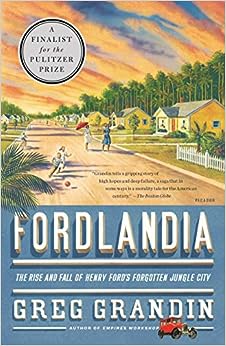
Ford popularized the protocols of the elders of Zion
Hitler admired Ford
Industrial pastoralism
Tried to buy the area called Muscle Shoals
Was a hero for many South Americans
For Ford, the Amazon offered a fresh start in a place he imagined to be uncorrupted by Union’s, politician’s, juice, lawyer’s, militarist’s, and New York bankers, a chance to join not just factory and feel but industry and community and a Union that would yield, in addition to greater efficiency, fully realized men period page 82
Forward established a credit union karma both to encourage savings and to make low interest loans available so workers didn’t have to go to an outside quote outside Shylock for assistance Period close He also opened up factory pharmacies and commissaries, which, unlike the infamous company’s store that kept workers perpetually indebted, provided employees a wide range of high quality products at low prices, often below cost period Page 90
Puta Mayo scandal
Highland Park was civilized, said Walter ruthercomma who is head of the United auto workers Union was the man responsible, years later, for ending Bennett’s reign of Terra, but the rose was a jungle period p. 94
Forward agreed to issue statement apologizing for his anti-Semitism, written by Louis Marshall, had the American Jewish committee and one of Ford’s chief critics period
I deem it to be my duty as an honorable man to make amends for the wrong done to the Jews as fellow men and brothers, by asking their forgiveness for the harm that I have unintentionally committed, by retracting so far as lies within my power the offensive charges lay at their door
For dislike Franklin Roosevelt. He did like unions.
The state of Para seated Ford just under 2.5 million acres, a bit less than what the Dearborn lawyer sketched out on the map but, at the at close to the size of Connecticut, still a vast dispenstation half of this was from the velari’s claim, for which Ford was to PAY a $125000 a pittance considering the company’s enormous wealth public land covered the other half, which board received for free period Page 106
Incredible bad planning planet rubber at the wrong time of year tried to clear the timber at the wrong time of the year no housing not enough hospitals just ridiculous
Jatulio Vargas came to power Often compared to FDR
Vargas supported the effort to bound for portlandia
Diego Rivera painting
Greenfield village
Ralph Waldo Emerson was a big influence
The main struts of Henry Ford’s philosophy all had antecedents in the 18th and 19th century American political and literary concepts: that mechanization marked not the contest but the realization of nature’s secrets and thus the attainment of the pastorial ideal that history is best understood in the progress of this realization, of the gradual liberation of humans from the soil crushing 12: and that American America has a provincial role to play in the world’s history in achieving this liberation it was from such well Springs of technological optimism that Ford was drawing when he predicted that his Muscle Shoals project would make it new Eden of our Mississippi Valley, turning it into a great garden and powerhouse of The country period. Page 257
To those who thought industrialization dead in mind and the spirit, forward responded by saying that 1 was the true cause of alienation period
Specifically, Ford refused to warm to Roosevelt in his new dealers people like that he told Charles Lindbergh always get what’s coming to them but Ford not only saw the country elect FDR 4 times but witnessed the federal government complete its Tennessee Valley authority project, in effect carrying out the Muscle Shoals proposal forward made a decade earlier. It would be Roosevelt and I had reported who would bring cheap electrical power to the farmers of the lower appalachian valley.
Ford manager’s, said the priest, never really figured out what country they were in period
Metal roof houses. Amazon.
For Henry Ford, gardening captured his vision of holistic immersonian self-sufficiency, in which esthetics in economics, nature and mechanics work as one periodPage 277
And so in for landia, as part of the Post riot rebuilding program, both Henry and Clara Ford became personally involved in promoting gardening, saying that it was their express wish that the planting of flowers and vegetables be incorporated into the State’s school cricket team and encouraged among its workers page 278
by Linda Jaivin
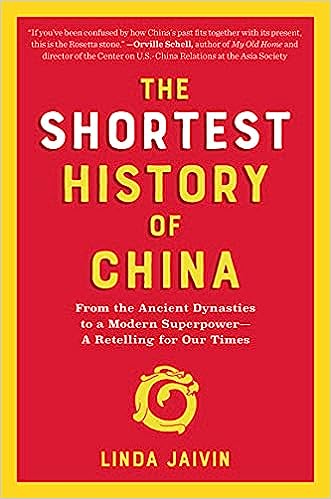
Kind of boring, but I did learn a lot.
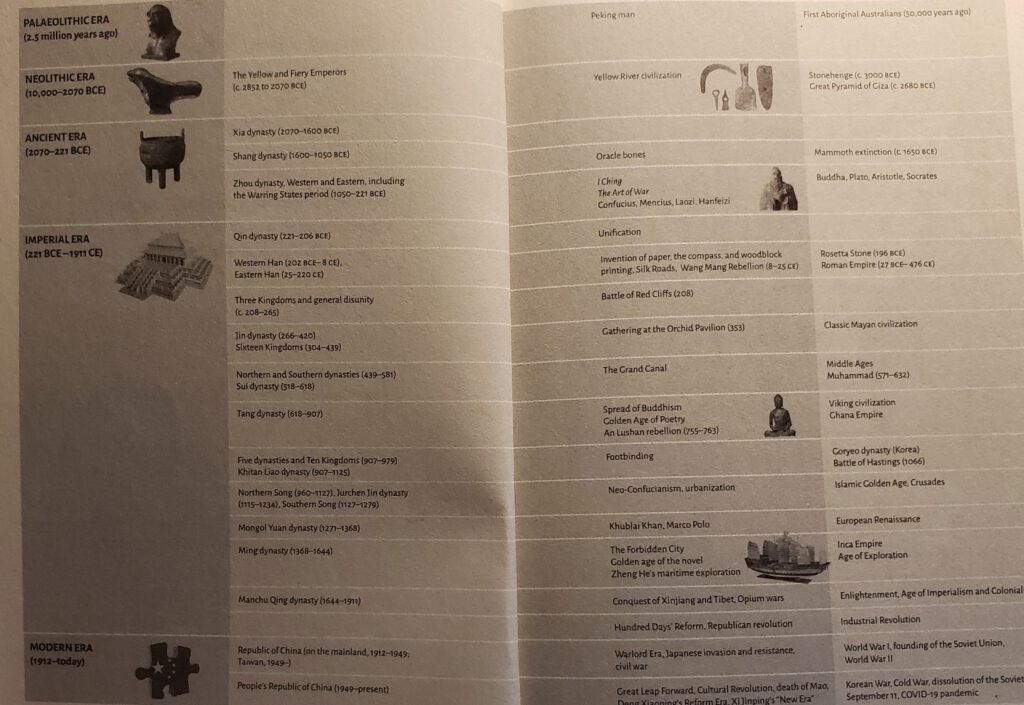
by Bertrand Russell

A collection of essays by Bertrand Russell, including his most famous, Why I’m Not a Christian, written in 1927.
by David Baker
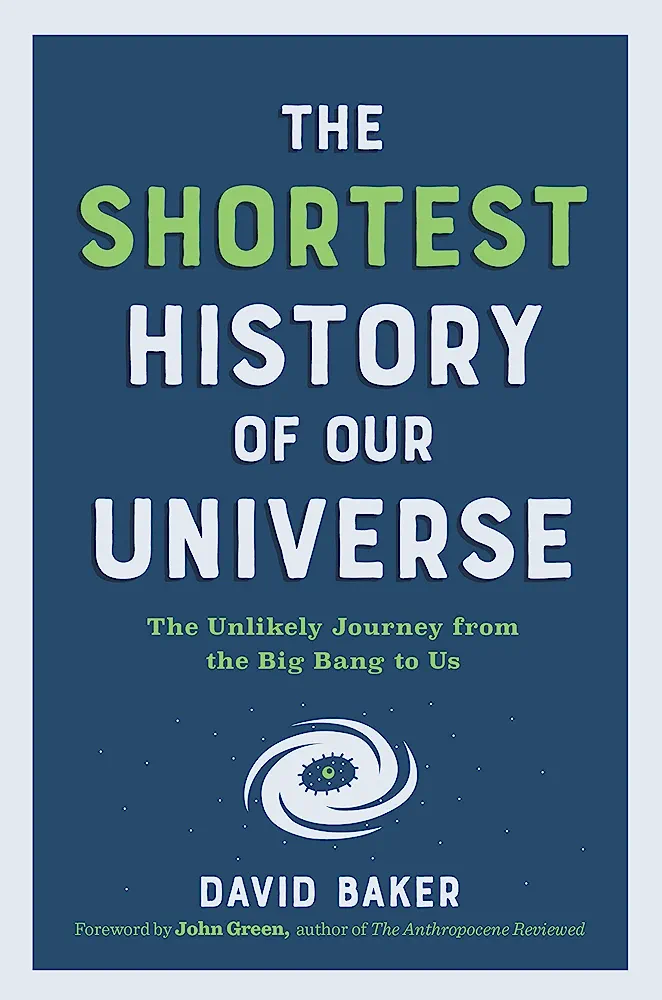
A very well written, very entertaining summary of the history of the universe/planet.
Part One Inanimate Phase
Our past can be divided into three phases
The universe appeared as a tiny dot, which could only have been observed by the most powerful telescopes (if they had existed). The universe was smaller than an atom.
The Big Bang is the story of it’s expansion. When that happened, the “four forces of the universe” – gravity, electromagnetism, strong and weak nuclear forces became coherent.
The universe was a sear of radiation, mostly hydrogen and helium, the simplest elements.
The universe became less dense, so light could travel freely. There was a blinding flash of light, the remnants of which can still be picked up by TVs and radios.
Edwin Hubble figured out that all the galaxies in the Universe must have been smooshed together at a single fixed point.
The universe is currently 93 billion light-years across.
The universe is shaped like a table top.
There could be other universes within our universe (the “multiverse”).
Time did not exist before the Big Bang, so it’s nonsensical to ask what there was before the Big Bang.
Chapter 2
Inequalities of energy during the Big Bang resulted in the Universe we know. Otherwise, would have been just “nothing”.
Gravity sucked Hydrogen and Helium together into increasingly dense clouds. Through fusion, these clouds exploded into giant fireballs. Thus, the first stars were born.
There have been three generations of stars. The first, which formed about 50 to 100 million years ago, only lived for a few million years.
Gravity attracted stars together to from clusters (galaxies). Milk Way is 100,000 light-years across, and has about 200 billion stars.
There are 400 billion galaxies in the Known Universe.
The 3rd generation of strs is only a few billion years old.
Our sun is a Yellow Dwarf, and will last 4 to 15 billion years.
Supernovas are exploding stars. These can produce heavier elements beyond the first 26, like gold, silver, and uranium.
A chemical is built upon a combination of elements strung together into a higher structure: a molecule. Example –> H2O.
Unifying pattern of all history is INCREASING COMPLEXITY.
No new matter and energy were added to the Universe after the Big Bang.
In order for any form of complexity to be created, some energy needs to be used. In order to have energy flow, you need to have flow from where there is more energy to where there is less.
Second Law of Thermodynamics. This law compels energy to want to even itself out – and it can only do that by flowing from where there is more energy to where there is less.
Eventually, the universe will run out of energy completely.
Chapter 3
Our galaxy began as a cluster of the first giant stars; 13.5 billion years ago. The hydrogen, helium, and heavy elements were sucked together again by gravity to form entirely new stars. The dust of the solar system contained all 92 elements, and swiftly began to form into 60 different chemicals.
The planets closer to the sun are rock, the outer gas, because the lighter ones were blown out farther during the explosion.
Earth and Theia (the size of Mars) crashed together to more the final Earth. 1.2 percent flew off and forced the Moon. This all happened around 4.5 billion years ago.
Over time, lighter elements came to the surfaces, heavier ones sunk.
Millions of asteroids brought tons of ice, which melted and rose into the atmosphere. By 4 billion year ago, the Earth was covered with water.
The Inanimate Phase came to an end. At the bottom of the ocean, life began.
Part Two – Animate Phase – 3.8 billion to 315,000 years ago
life and evolution. life began 3.8 billion years ago. It happened after the temperature dropped below the boiling point, and then millions of years of rainfall created the first oceans. Liquid water was the ideal environment that allowed organic chemicals to move and join together in a soup-like mixture.
Carbon, hydrogen, oxygen, nitrogen, and phosphorous are the most important for self-replicating life.
Amino acids are a combination of carbon, hydrogen, oxygen, and nitrogen atoms,, that are crucial for fueling life.
A protein is a tangle of about twenty amino acids. They move things around in a cell.
DNA is the software of the organic computer, it makes living things look and act like they do. It tells the proteins what sort of traits the cells hosuld have and how they should behave.
RNA is the hardware. takes the instructions form DNA and delivers them to the small parts on a living cell that produce proteins.
DNA copies itself. Occasionally, there is a small mutation. Mutations create historical change in biology.
Plants give off oxygen, which was converted into the ozone layer, which blocked out some of the sun, allowing the earth to cool. Eventually, the oceans froze. This time is referred to as “Snowball Earth”.
Had a long period of expulsions and extinctions around 635 to 65 million years ago.
Chapter 6 Primate Evolution
By 55 million years ago the ancestors to whales and horses and other familiar animals appeared, including primates.
Humans split off from gorillas about 10 million years ago.
Chimpanzees are our closest surviving evolutionary cousins. we share 98.4 percent of our DNA with them. (The Bonobos chimps, cousins of chimps, were female-led. Lots of sex.
Homo erectus emerged about 1.9 million years ago.
Part Three – The Cultural Phase – 315,000 years ago to the present
Humans were foragers at first.
The main driver of society was “collective learning.”
Neanderthals appeared about 400,000 years ago.
Homo sapiens about 315,000 years ago. They won out because they were the best at collective learning.
by Ernest Hemmingway
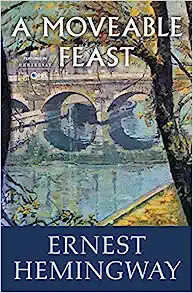
Hemingway’s recollections of his time as a young man in Paris. Contains truly hilarious antidotes about his encounters with Scott Fitzsgerald.
by Ryan Holiday
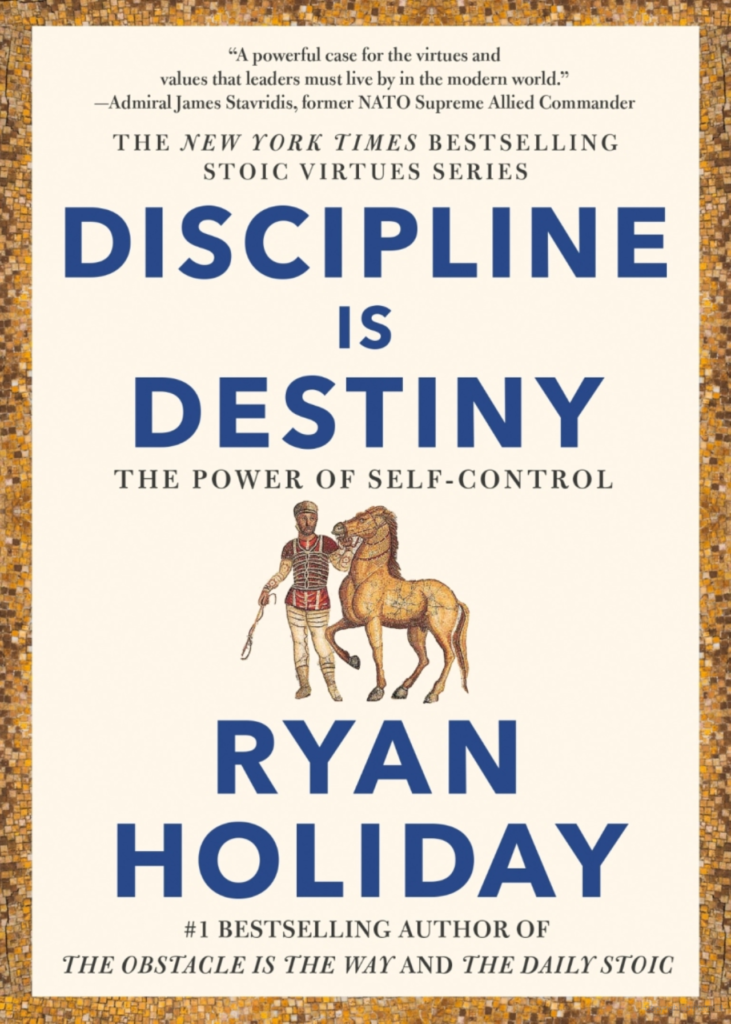
This is sort of a high-class self-help book. Lots of fancy references to ancient philosophers an that sort of thing, but really underneath it just another “you can do it” tomb.
Still, an easy read with lots of ideas (if rather pedestrian ones) that one could/should take to heart.
A quote from W.E.B. De Bois. “Make yourself do unpleasant things so as to gain the upper hand of your soul.”
some good advice below…
The pause is everything…
The one before…
…jumping to conclusions
…prejudging
…assuming the worst
…rushing to solve your children’s problems
…forcing a problem into some kind of box
…assigning blame
…taking offense
…turning away in fear
share the load
Carter – “no sir, I did not always do my best.” (answer to Rickover)
Tolerant with other/strict with yourself
Carry the load for others…general Charles Krulak – Quantico – worked guard duty in place of ordinary soldier
by John Julius Norwich
Leaders
Vercingetorix – “great warrior king” – 50 BC -defeated by Romans/Ceasar
Attila the Hun invaded around 400 AD
Roman Empire fell, Gaul area ruled by various tribes
Clovis – king of the Franks – took on the Christian faith
Charlemagne – 8th century – greatly extended empire – fell apart after his death. – Carolingian Dynasty
Invasion of Vikings in 10th century
Hugh Capet – “elected” in 10th century (didn’t come to power via heredity) . Rome church backed him.
Pope Urban II and the First Crusade. Lead by Urban. Was “successful”.
Louis II – married to Eleanor – who divorced him and married Henry II (kings of England). Louis started Notre Dame Cathedral in 1163. And University of Paris (Sorbonne)
Louis II son, Phillip Augustus, was one of the great French kings. First real king of the Franks (all of them).
Richard the Lion-hearted was the son of Henry. He, with Phillip, led the disastrous Second Crusade.
Phillip removed England from French territory. He eliminated the threat of the Germans.
(last page 63)
Louis X – Louis the Quarrelsome – let the Jews back in the country- but they had to live in a ghetto and wear an armband (!)
He also murdered his wife.
Phillip VI was king at the start of the 100 Year War with England. Phillip was a brave warrior by a terrible general.
Edward III took Calais. (Rodin, the Burghers of Calais)
Charles VI was insane
Henry V (england) invaded in 1415.
1429, Joan of Arc. Had some success in battle.
Charles VII, France, flourished after 100 year war.
author says Louis XI was an awful person, but left France stronger than ever at the end of the Middle Ages.
p. 106
Francis I “was the Renaissance”. His book were used to found the Bibliotheque Nationale.
Huguenots = Protestants.
p. 142
St. Bartholomew’s Day Massacre – Catholics and Protestant battle. Lead to civil war between Catholics and Protestants.
Henry of Navarre – first non-Catholic king
Henry built Lourve – and Pont Neuf oldest Seine Bridge
Duke of Richelieu – killed Huguenots
Louis XIV – king for 72 years
fronde – series of unsucessful uprisings between 1648-53
War of Spanish Succession (Spain king Charles died, left crown to Duke of Anjou, Phillip. He tooks over (Charles did this because of the Inquisition.)
Led to the ware between with England, the Empire, Dutch.
“the civilization of France in the age of Louis XIV is among he most brilliant that the world has ever known.” p. 174
Louis XVI – 20 years old became king. big eater (like 14). short. liked astronomy. married Marie Antoinette. from Austria. didn’t screw for 7 years. Should have listen to controller Turgot, who told him/marie to limit spending.
Estates General – nobility, clergy, and everyone else. Mirabeau was chosen as leader of “everyone else.” good speaker.
“storming of the Bastille” (Bastille was a prison). king was “busy” hunting, as usual. Royal family forcefully move from Versailles to Tuileries in Paris.
escaped from Tuileries. hope to convince Austria and/or Spain to invade France. caught. Jacobins rise to power (anti-royal message).
Louis and Marie faced guilloine in 1792.
French Revolution. Girondins vs. the Jacobins. Robespierre leader of Jacobins.
Committee of “Public Safety”.
Napoleon Bonaparte takes over after the fall of Robespierre.
He coudn’t attack England, their Navy was too strong. Went to Egypt instead. disaster.
big mistake in Russia. allowed them to draw him farther and farther into country as winter was coming. many froze.
exiled to Elba. excape, took over France again, lost again at Waterloo, exiled to St. Helena.
he did “spread revolutionary ideal of liberty, equality and fraternity the length and breath of the continent.”
Louis XVIII took over after Napolean.
Talleyrand was succeeded by Duc De Richelieu.
Charles X was a “disaster” – suspended the constitution, closed newspapers, was quickly kicked out.
Louis-Philippe took over, wanted a constitutional monarchy. book says “he was one of the best kings France ever had”
Second French Republic after Philippe. 1848. Napoleon III took over. Made himself Emperor. Married Eugenie in 1853.
Napoleon redid Paris, Georges Haussmann in charge of the project. Rue de Rivoli, Rue Saint-Antoine, Boulevard Saint-Germain, Ave de l’Opera, Avenue Foch, Voulevar de Sebastopol, Boulevard Haussmann. new bilding, the Palais Garnier, cnetal market Les Halles.
Crimean War in 1853.
Mexico owned British, French, Spain lots of $. They invaded. Went badly.
Bismarck invaded Austria after Nap. said they would not interfere (!).
Franco-Prussiona war. French lost. End of Nap. Paris seige, hot air balloons. American help.
Third Republic in 1870 (after Nap.). Panama Canal scandal. bribes.
Dreyfus affair. (he was not guilty)
Battle of the Marne (wwi)
Battle of Verdun.
US was “largely responsible for the German defeat” in WWI.
Treaty of Versailles.
Free French, force that fought back against Hitler.
Vichy was the “french” gov’t that collaborated with the Nazis.
Operation Torch
Battle of the Bulge (Hilter’s last crazed offensive)
by Rylan Holiday
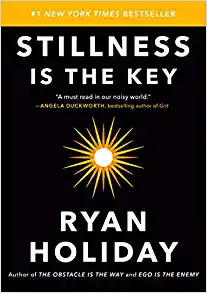
Holiday turns the thoughts of the Stoics into a briskly passed self-help manual, which to me, seems at least a somewhat questionable exercise. It reminds me a bit of Joel Osteen, who does a similar (but much more objectionable) thing with the sayings of Jesus.
I can’t say I didn’t find it a “good read.” It contains much food for thought, and is certainly a good into to the Stoics.
by Janet Malcolm
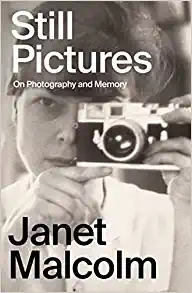

by Kathryn Scanlan
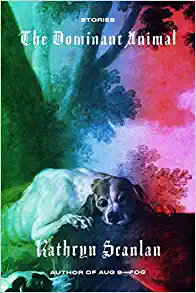
by David Cantwell
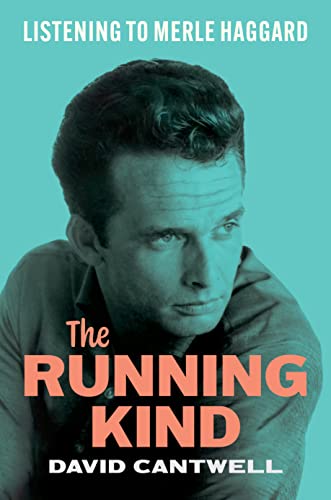
An overview of the work of Merle Haggard. This book focus on the songs, it’s not an autobiography.
by Joseph Goldstein and Jack Kornfield
All religions are rather ridiculous; and all have something to teach. Buddhism is no different.
by Susan Tooze
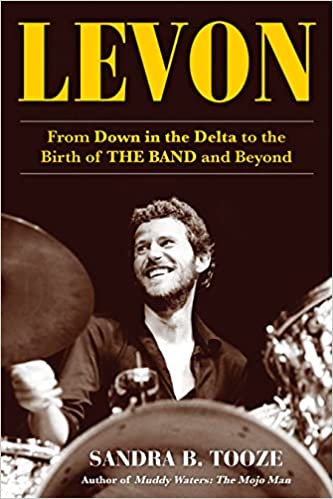
Terrific book. I particularly liked how the author focus not only on the fame and fortune and unfortunate but also on why Helms and the Band were important figures in rock ‘n’ roll history.
by Eric Hoffer
Hoffer was an American moral and social philosopher. He was the author of ten books and was awarded the Presidential Medal of Freedom in February 1983. His first book, The True Believer (1951), was widely recognized as a classic, receiving critical acclaim from both scholars and laymen, although Hoffer believed that The Ordeal of Change (1963) was his finest work.
Preoccupation with the self has always seemed to me unhealthy. p. 3
Men feel lonely when they do not the one thing they ought to do. p. 8
I have always wondered whether it is vital for a society that all its members should have some common subjects in which they are equally interested and in which they all have some expertise. In Byzantium the common subjects were theology and chariot races. In this country they are machines and sports. p. 11
He who clings with all his might to an absolute truth fears compromise more than the devil. p. 12
The whole world is imitating us, is becoming Americanized, yet the countries that become like us tend to resent us. p. 16
Being without an unequivocal sense of usefulness and worth, the intellectual has a vital need for pride, which he usually derives from an identification with some compact group, be it a nation, a church, or a party. p. 30
We cannot experiment with humanity, but history is a record of how man reacted under a variety of conditions. p. 33
An optimal milieu is one in which the creative are in close intercourse with each other – hating, loving, envying, admiring; where faces flush, hears flutter, and minds swell with the passion to rival and emulate. p. 36
by National Baseball Hall of Fame
First World Series 1903 – Honus Wagner’s Pirates against Cy Young Pilgrims (Pilgrims won in best of nine – not seven)
Christy Mathewson – Giants – won 31 games in 1905 – in Series, pitched three shutouts in a six day span
1906 Cubs – record of 116-36 – never bested (Tinkers, to Evers, the Chance)
Fred “Bonehead” Merkle of Giants – didn’t touch second, so run didn’t count, lost pennant to Cubs
Cy Young – won 511 – lost 315. completed 749.
Ruth and Shore combined no-hitter – 1914
Babe Ruth – World Series pitching scoreless streak -of 29 2/3
lifetime 94-46
Black Sox 1919
Walter Johnson World Series relief appearance – 1924
Ty Cobb – top lifetime batting average .366. 4,189 hits (in 2,619 less appearances than Rose, who broke that record). 892 stolen bases
Grover Cleveland Alexander – 1926 series – brought in to relieve w/ bases loaded; got them out, pitch two more scoreless innings for the win.
1927 – Ruth hits 60. in 1919, Ruth hit 29, which was more than were hit by 10 of the 15 teams in the Majors.
Hack Wilson – 191 RBIs in 1930. in (NY Giants that year had a team batting average of .319. THe NL as a whole hit .303)
Carl Hubbell – make screwball famous – early coaches won’t let him throw it because to potential arms issues – so took him long time to reach the majors. Struck out Murders Rows in 1934 All-Star game.
Lights – 1935 first major league game under the lights – 1880 was the first game (not pro, more of an exhibition). 1909 first Negro League game w/ lights.
Johnny Vander Meer – two no-hitters in a row – ended after 21 2/3 innings
Lou Gehrig – 2,130 consecutive games
DiMaggio – a hit in 56 straight games – 1941
Mickey Owens – passed ball in ninth – 1941 World Series
Joe Nuxhall – youngest player ever – 15 – 1944
Jackie Robinson – first game April 15, 1947
Eddie Gaedel – midget – played one game in 1951
1951 – Bobby Thompson – “Shot Heard Around the World” – “The Giants win the pennant! The Giants win the pennant!” (Giants tied the Dodgers, the game was a special three game playoff)
“The Catch” – Willie May in the 1952 Series
Last Triple Crown – Carl Yasrzemski – 1967
Don Larsen – 1955 – pitched perfect game in 1956 Series
Harvey Haddix – 1959 – pitched perfect game until two out in 13th inning – lost game.
Ted Williams – homer in last at bat
Bill Mazeroski – homer, bottom of 9th, seventh game 1960 World Series
Maris – 61 homers in 1961 – took more than 154 games
Rickey Henderson – 130 stolen bases in 1982
Lou Brock – 118 in 1974
Maury Wills – 104 in 1962
Koufax – lowest ERA in five consecutive years
Nolan Ryan – 7 no-hitters
1968 – “year of the pitcher” – Gibson 1.12 ERA
Miracle Mets of 1969
The “Four Aces” – O’s in 1971 – Cuellar, Dobson, McNally, and Palmer
Aaron – 755 – broke record in 1974
Bucky Dent – homered to beat Sox in playoff (tied at end of season) -in 1978
Nap Lajoie – 1901 – .426
Hornsby 1924 .424
Cobb 1911 – .420
Williams – 1941 – .406
Rule 1.10 – pine tar – 1983
Rose – 4,192 hits
Cubs – lights – 1988
Nolan Ryan – 5,714 Ks
Ripken – 2,131 games
edited by Bill Morgan
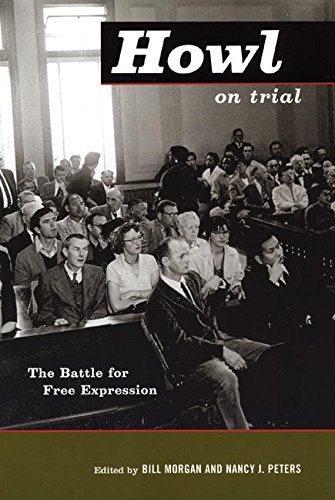
Not exactly the most exciting read of all time. Basically, a edited transcript of the trial, plus edited selection of letters to/from Ginsberg about the particular of getting Howl published.
On the plus side, the trial is as relevant as ever with the Republicans once again on the prowl to ban as many books as possible. Morons.
by Paul McCartney

Continuation of Vol. 1. So fun to read.

Highly recommended. So fun to read the little stories behind the songs (and I’m not even that big a Beatles fan).
by Daniel Walter
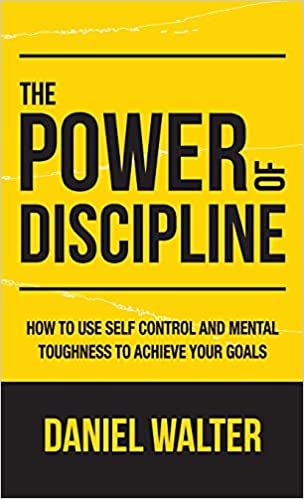
As the subtitle says, a book that explores “how to use self-control and mental toughness to achieve your goals.” All self-help books make change seem easy. Of course, it’s not. But the tips in this book are definitely worth studying and attempting to implement.
by Bob ManKoff
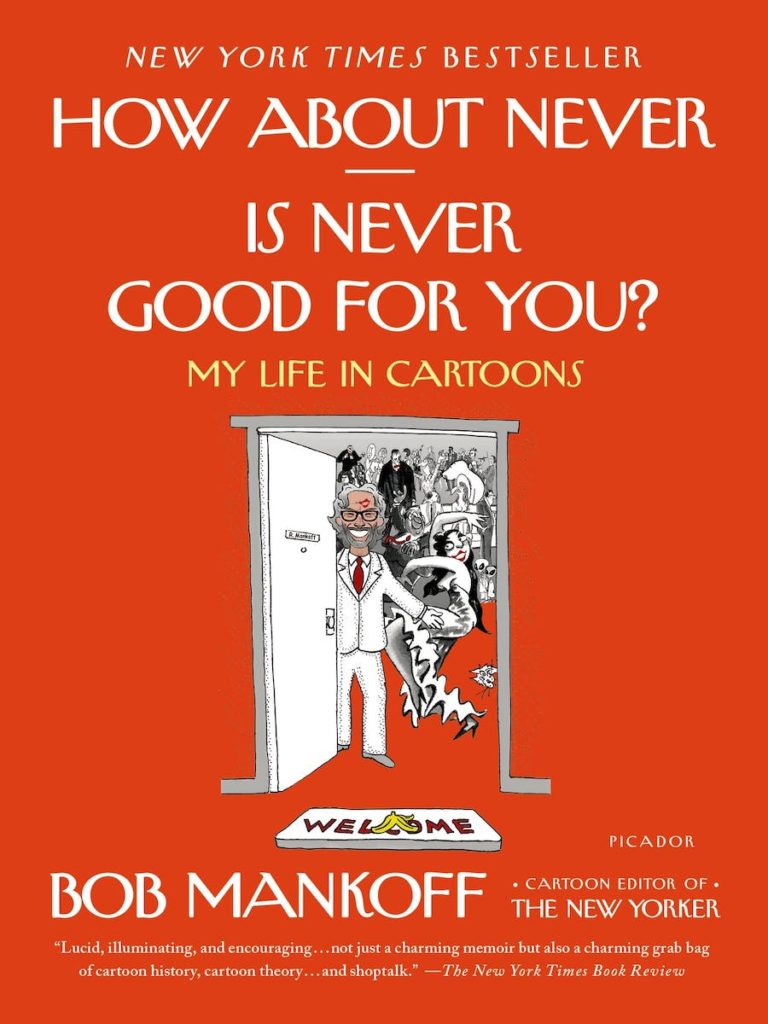
Funny, interesting bio from the New Yorker cartoon editor.
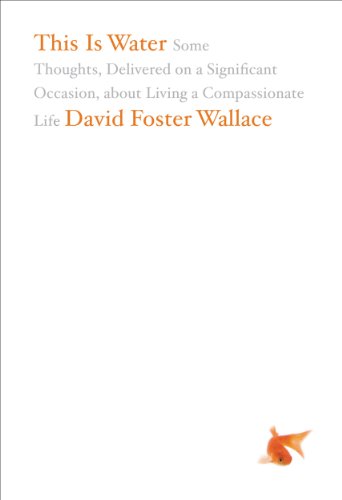
by David Foster Wallace
eh.
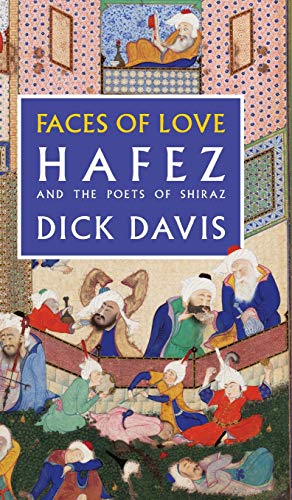
by Dick Davis
Collection of the poems of Hafez, Jahan Khatun, and Zakani.
Your face usurps the fiery glow and hue
of roses.
Your ringlets' fragrance is so sweet, my friend,
No fragrant rose-scent could entice me to
seek roses --
Besides, the faithless roses' scent will fade,
Which is a serious drawback, in my view,
of roses;
And if the waters of eternal life
Had touched their roots, so that they bloomed anew,
these roses,
When could they ever form a bud as sweet
As your small mouth, which is more trim and true
than roses?
Jahan Khatun
by Albert Camus
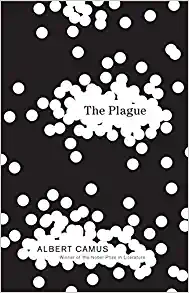
by Harry Caudill
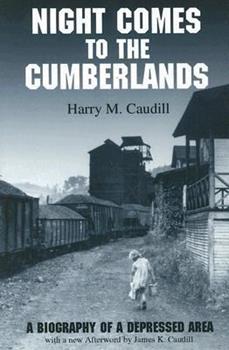
A story of how circumstance, bad government, and too powerful corporations came together to ruin lives and destroy the environment.
translated by Edward Fitzgerald
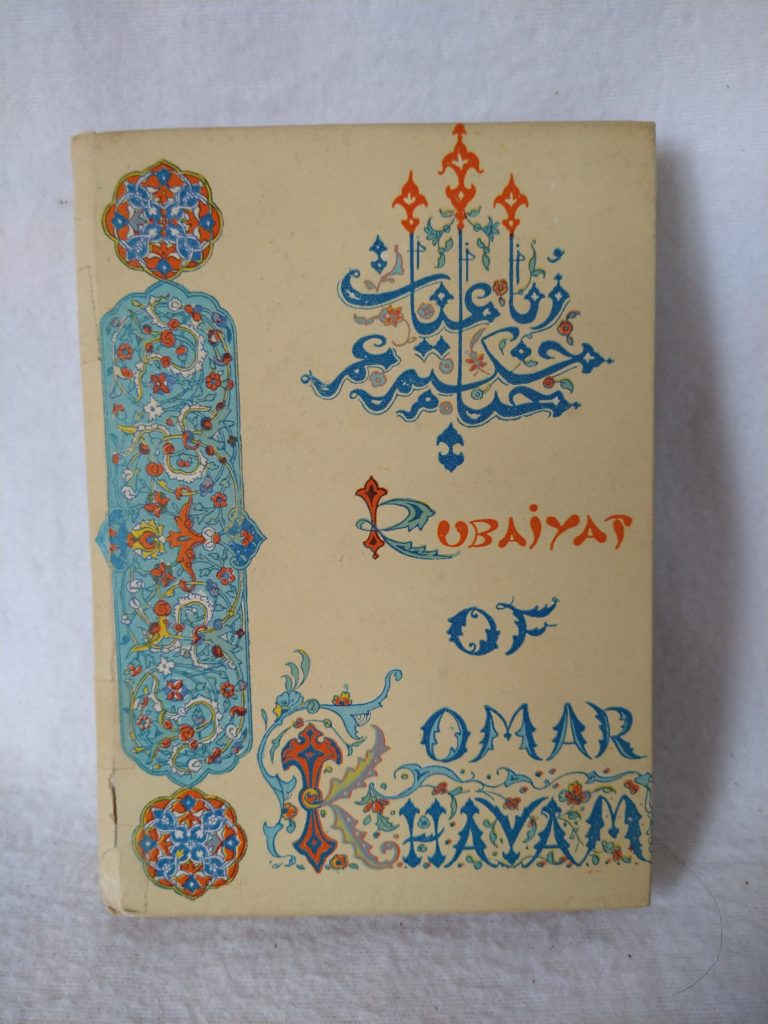
“Don’t cry upon your losses
Don’t measure today with tommorows
Don’t trust to passed and coming day
Believe in now – and be happy today.” ~ Omar Khayyam
by Michelle Mercer
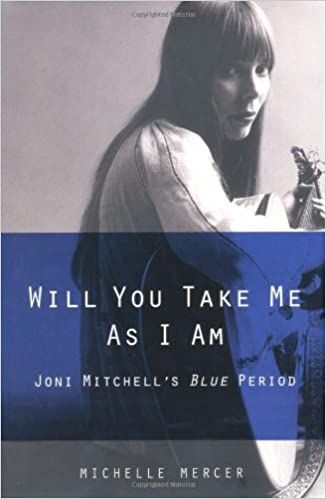
A rambling look at Mitchell’s great album, Blue. It was as much a biography as a study of Blue, but whatever. It was a fun read.
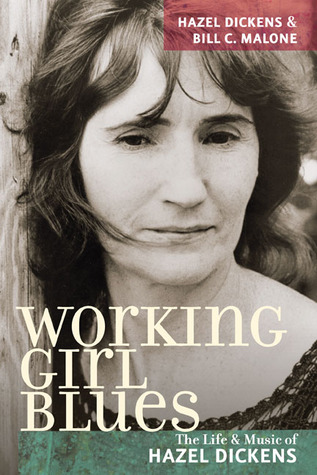
Hazel Dickens is a way underappreciated artist. Good book.
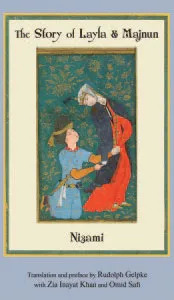
A Persian prose poem was written by Nizami Ganjavi in the 12th century. Lord Byron called it, appropriately, the Romeo and Juliet of the East.
Really beautiful.
by Gary Oelze and Stephen Moore
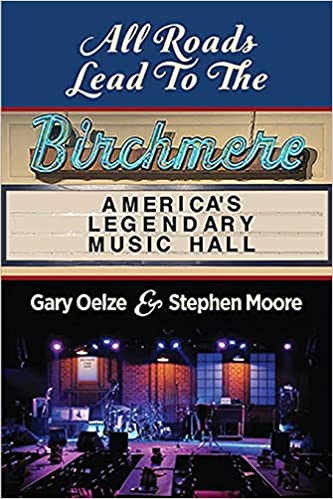
A fun read about the history of the Birchmere, my favorite music hall.
by Iraj Pezeshkzad

A novel by an Iranian writer. Satire on Iranian culture. I found it periodically funny, but overall I didn’t think much of it. It repeats the same joke about Iranians’ susceptibility to conspiracy theories over and over and over.
by Joe Brainard
Every sentence starts with “I remember.” What a simple idea. Surprisingly, a really great idea.
by Ricki Lee Jones
Story of triumph over a very difficult upbringing.
by Henry Mitchell
Mitchell is well known for his gardening columns that appeared for many years in the Washington Post. Any Day is a collection of the non-gardening columns he also wrote for the paper.
Mitchell was a tremendous essayist.
by Christopher Clarey
Bio of the great Roger Federer. Too long, but a lot of insight into the career of one of the greatest tennis players ever.
by Tara Westover
Autobiography by a woman brought up in an incredibly dysfunctional Mormon family. Holy shit. Eventually goes to college/Cambridge/Harvard. Gets a Ph.D. Against all odds.
by Henry Mitchell

Without doubt, the funniest and most profound book on gardening ever written. Mitchell was the garden columnist for the Washington Post for several decades. He has no rival.
https://www.plinthetal.com/plinth-et-al-1/2013/07/03/henry-mitchell-on-gardening
by Peter Axthelm
The story of the 1970 New York Knicks run to the championship, interspersed with the stories of many NYC playground legends who never found their way to fame and fortune.
Loved it. The best book I’ve read I’ve quite some time.
Edited by Mary Pilon and Louisa Thomas
Fun read about selected athletes who lost.
by Betty Smith
The follow-up novel to A Tree Grows in Brooklyn. Not the cheeriest of reads, but compelling. Read it in one day.
by Matthew Walker
Interesting book on the importance of sleep, written by a PHD who has devoted his career to the subject.
by Colin Knighton
Fun book about a guy that got dumped and then decided to visit every National Park.
by Henry David Thoreau
The greatest book that was ever written.
by Bob Woodward and Carl Bernstein
Great book about the reporting Woodward and Bernstein did on Watergate.
by Al Stump
The accuracy of this book has been roundly questioned. I don’t have an opinion on that. However, the author had personal access to Cobb while he was alive, which is something authors of most biographies can’t say.
Cobb was a fascinating psychopath, which makes for a very interesting read. The second best baseball player – after Babe Ruth – of all time.
The book was a bit longer than necessary.

Wanted to find out a bit about style, since we have been working on the house a bit.
The book was good to learn a bit of the basics. It was an interesting read too. The author included some really revealing pieces of her own life that really added to the reading experience. I can see why the book and blog are popular.
by David McCullough
![[photoshop:Headline]. [photopress:stringOfKeywords].](http://www.billsteve.us/wp-content/uploads/2021/01/the_greater_journey-1024x1024.jpg)
I’ve always found McCullough’s books entertaining. I found this one pretty boring. Repetitive and way overlong. Should have half the length. Fire the editor.
The premise of the book was unique. A history of the many Americans that went to Paris to study – or in some cases just party – during it’s heyday as the world’s capital of knowledge and art.
by Wille May and John Shea
![[photoshop:Headline]. [photopress:stringOfKeywords].](http://www.billsteve.us/wp-content/uploads/2020/12/mays.jpg)
The book is a (very) extended interview between May and the author, which a lot of historical information included. May’s story is makes for good reading, although I thought the book was too long and repeative.
Some of the more interesting things I learned.
Each chapter started with a quote from Mays. Many a memorable, common-sense advice.
Be open to learning from your parents and understanding where they’re coming from. They can help you if you let them.
Have fun with everything you do. Be comfortable. No need to act like you’re somebody else. Be yourself. That’s good enough.
Life takes you many places. Make the best of any situation. Complaining doesn’t help. You’ve gotta adjust and make it work for you.
Push to get the most out of your ability in whatever you do and feel good about yourself for getting the job done every day.
If you give your best effort, don’t get down on yourself if things don’t work out. Be happy with yourself and move on.
I had my own advanced stats. I learned hitter’s tendencies and memorized their strengths and weaknesses, which put me in the right position to succeed…
.302 lifetime average. 3,283 hits. 660 home runs. 1,903 RBIs. 338 stolen bases. 156.4 WAR.
by Evan Osnos
![[photoshop:Headline]. [photopress:stringOfKeywords].](http://www.billsteve.us/wp-content/uploads/2020/12/biden2-664x1024.jpg)
Good book, based on a series of articles Osnos wrote for the New Yorker. This portrait, like the several others I’ve read, give me a little hope for America. Biden is a decent, hard working person. We need many, many more like that.
by Jules Witcover
![[photoshop:Headline]. [photopress:stringOfKeywords].](http://www.billsteve.us/wp-content/uploads/2020/12/biden.jpg)
I already liked Biden. Small town kid, middle-class, family man, friend to those in need. What’s not to like? After reading this book, I like him even more. A man also of major accomplishments, intellectual power, and a tremendous work ethic. What’s not to like? Even less now that I’ve learned more about him. (Ok, he could be a little cooler. I’ll bet his taste in music is pretty bland.)
by Joe Biden
![[photoshop:Headline]. [photopress:stringOfKeywords].](http://www.billsteve.us/wp-content/uploads/2020/11/41TIUPpTp8L._AC_.jpg)
Interesting book about Biden’s years as VP, and the trials he faced during his son’s illness.
by Scott Petterson
![[photoshop:Headline]. [photopress:stringOfKeywords].](http://www.billsteve.us/wp-content/uploads/2020/11/51p67dWgWSL.jpg)
by Hooman Majd
![[photoshop:Headline]. [photopress:stringOfKeywords].](http://www.billsteve.us/wp-content/uploads/2020/10/3488337.jpg)
by Christopher de Bellaigue
![[photoshop:Headline]. [photopress:stringOfKeywords].](http://www.billsteve.us/wp-content/uploads/2020/10/244616.jpg)
A personal account of living in Iran post-revolution. With a bit of history thrown in.
I have mixed feelings about this book. It’s not for a person unfamiliar with Iranian history. I do like the approach, a mixture of personal experience and history. However, I found a good bit of the descriptions of his experience overly long and just not that interesting.
by Con Coughlin

The author, instead of getting to deep into the details of Khomeini’s life, included a lot of information on what was going on in Iran during his life, which made the book much more interesting. Kudos.
by Randy Pausch

Pausch was a computer science professor who contracted pancreatic cancer. He decided to do one final lecture, primarily aimed to teach his children some life lessons.
Pausch was a brave man with some interesting insights. It was a bit too uplifting for my tastes.
by Stephen Kinzer
A history of the 1953 U.S. led coup in Iran.

by Kermit Roosevelt

This book, about the 1953 coup in Iran that toppled Mossadegh, gets a lot of criticism for over-emphasizing the American involvement and also playing fast-and-loose with the facts.
That may be, I can’t judge, but I can say it’s a really good read. Roosevelt, Teddy Roosevelt’s grandson, could write.
by Donald Worster

A biography of the environmentalist extraordinaire, John Muir. Good book, nicely paced, it gets a bit slow towards the end, but I guess to be expected since Muir’s life wasn’t as exciting.
by Chelsea Handler
A kind of trashy autobiography written by the comedian Chelsea Handler. I want to read more about the Enneagram, the psychological test she said helped her understand herself better.
by Billy Collins
From the heart of this dark, evacuated campus I can hear the library humming in the night, a choir of authors murmuring inside their books along the unlit, alphabetical shelves, Giovanni Pontano next to Pope, Dumas next to his son, each one stitched into his own private coat, together forming a low, gigantic chord of language. I picture a figure in the act of reading, shoes on a desk, head tilted into the wind of a book, a man in two worlds, holding the rope of his tie as the suicide of lovers saturates a page, or lighting a cigarette in the middle of a theorem. He moves from paragraph to paragraph as if touring a house of endless, paneled rooms. I hear the voice of my mother reading to me from a chair facing the bed, books about horses and dogs, and inside her voice lie other distant sounds, the horrors of a stable ablaze in the night, a bark that is moving toward the brink of speech. I watch myself building bookshelves in college, walls within walls, as rain soaks New England, or standing in a bookstore in a trench coat. I see all of us reading ourselves away from ourselves, straining in circles of light to find more light until the line of words becomes a trail of crumbs that we follow across a page of fresh snow; when evening is shadowing the forest and small birds flutter down to consume the crumbs, we have to listen hard to hear the voices of the boy and his sister receding into the woods.
Edited by David Gallen

Fun collection of articles written about some of baseball best old-time stars. Most written during the players career. Fun read.
The story of Dock Ellis, pitcher for the Pittsburgh Pirates. I remember him well from when I was a kid. The Pirates were my favorite team. I remember the names of most of the players mentioned.

Book was written by Donald Hall, Nobel Laureate poet, and big baseball fan too.

Great collection of essays by Truman Capote. I had read In Cold Blood and some other things, but his essays are really his best work. Great stylist.

The book consists of a series of excerpts from various works by Fred Rogers. I suppose it’s fair to say that Mr. Rogers was a bit cornball and simplistic. It’s certainly understandable why have many people, including me, didn’t pay a lot of attention to him.
But after seeing the recent movie, A Beautiful Day in the Neighborhood, doing some reading about his life, and reading this book, I can see the value of Mr. Rogers. Actually, his thoughts on love and kindness are profound.

Written by the daughter of Kenny Shopsin, the founder of the famously quirky restaurant which carries his surname.
Written in a quirky style, with funky typography. Primarily short antidotes about her family and the restaurant. It starts off kind of slow but becomes a lot of fun about halfway through.
The title refers to her father’s philosophy. Nothing really matters, but dedicating oneself to something actually makes it matter. (I may be wildly mispresenting his thoughts.)

An analysis of the rise of Hilter. Many parallels to the rise of Trumpism, albeit on a much larger scale.
Really something of a boring book. Probably important for future historians, but too much detail for the average reader.

An autobiography of John Callahan, who was a well-known cartoonist. His work is pretty edgy, some would call it insensitive (I wouldn’t).
He was a raging alcoholic from an early age. He describes in harrowing detail – and humor – his journey through the hell of alcoholism, which ended up with his being in a terrible drunken car accident, which then led to his struggle with being a quadriplegic, and eventually salvation through cartooning.
Highly entertaining book.

Didn’t take notes on this one.
What a great, great man. His life is an inspiration.
Pretty much the same story as all the others.

To boil it down to one paragraph. Reagan’s “great” insight was that the presidency was just another performance, very similar to his movie roles. He focused on his and his staff’s presentation and frequently ignored the real job. Kind of brilliant, and also sad.

Bush’s father was a senator from Connecticut. And executive at steel company. Ann Richards said he was born with a silver foot in his mouth

Fun dairy style book from Jim Fixx, author of the bestseller “The Complete Book of Running”. Discusses how the book came about, the the life changing result – both the good and bad. Fun read.
Bourne was a friend/colleague of Carter. I thought that might be a problem, but it seemed to give a reasonably balanced view of Carter. It was much more detailed than I needed. Bit slow.
On the one hand, lot of rambling drivel. On the other, lots and lots of wit; parts of it were really fun.
I also felt something of a kinship with him, which is odd, since I’m so normal, and he was well, not.
Many quotable quotes. I should have written them down as I went.

Very, very strange comic book-style biography of Edvard Munch. It used mostly books, diary entries, and Munch’s paintings to tell the story. Plus soem comic book style dialog between the author and his buddy discussing Munch.
I new most of the biographical material before, but a good review. A fun read, very original (at least to me) concept.

Enjoyable, short and to the point biograph of LBJ. This book was just the right amount of depth for me.
Born in was born in 1908 in Texas. Not a good student. Mother was dominant force in his life. Went to a small teachers college in Texas. During college, worked as a teacher in a very poor town. Worked very hard, helped the students. Organized many activities for them such as sports leagues etc.
Was the editor of the school newspaper. Participated in debate club.
Got a job with a Texas Congressman, Richard Kleberg, a liberal. Used this first major connection to forward career. Became Congressman, served in military while in Congress, then Senator from Texas. Lost first run due to election fraud. Committed his own fraud to win the second time.
Extremely successful Senator. Very good at using rules to his advantage, building coalitions, and when that didn’t work, twisting arms. Very persuasive.
JFK made his his VP, mostly to help win the south. Bob Kennedy hated him. John was ok with him.
Worked hard to forward JFK’s agenda. Extraordinarily successful on the domestic side. Struggled with Vietnam.
(fill in details later)


 Fun little book about Harry and Bess’ drive from from Independence, Missouri to D.C. after his presidency was over. Back in the day a president didn’t get a pension, secret service, or anything. Truman was basically just another guy, albeit another guy that was a president. He wanted to take a cross-country trip as just another guy, but of course it didn’t workout quite that way. Author made the story interesting, weaving a bit of history, Truman’s backstory, his own story, and geography into the narrative.
Fun little book about Harry and Bess’ drive from from Independence, Missouri to D.C. after his presidency was over. Back in the day a president didn’t get a pension, secret service, or anything. Truman was basically just another guy, albeit another guy that was a president. He wanted to take a cross-country trip as just another guy, but of course it didn’t workout quite that way. Author made the story interesting, weaving a bit of history, Truman’s backstory, his own story, and geography into the narrative.
 Autobiograph of Steve Forbert, on of my favorite lesser-known singer songwriters. Steve Forbert fans should read this book. Lots of great background information on his recordings.
Autobiograph of Steve Forbert, on of my favorite lesser-known singer songwriters. Steve Forbert fans should read this book. Lots of great background information on his recordings.
He give the best definition of folk music I’ve heard. If at least 20% of a song is similar to what Woody Guthrie did, then it’s folk music.
Enjoyed hearing his thoughts on fathering twin boys.

Short stories by an American-Iranian writer. Very dark, very quirky. I particularly like the very first story, Bettering Myself. Need to read that one again.
Sometimes her stories seem just weird, but not weird in a good way. Just kind of too far out there.
Born and raised in Vermont. Father held many positions, including farmer, storekeeper, state senator.
Attended Amherst. Struggled early, found his way late as a member of debate team. Excelled, won awards.
Read law. Moved to Massachusetts. Married in 1905. Elected to state House of Representatives. Elected governor in 1915.
Vice President to Harding. Becomes President when Harding died of heart attack.
Biggest achievements centered around fiscal matters. He shrank the size of the federal government. Significantly reduced the national debt. He also was an early supply side amateur economist. He cut taxes which according to the author reduced the deficit (I am deeply sckepital.)
He refused to run for a second terms even though he was very likely to win.
Was known as “Silent Cal.”
Died of a heart attack at 60.

Inspiring story of Emma Gatewood, the first woman to to hike the entire Appalachian Trail. She did it for the first time at age 67. She did it two more times (one of these was in sections). She also hiked the Oregon Trail, and did many others. When asked why she did it, she said “Because I wanted to.”. Love that.
Fairly short history of Germany. Complicated story.

Yes, that John Dean, of Watergate fame.
Dean grew up in the same Ohio small town as Harding.
Harding was a very good student, could do well without a lot of effort. Roommate in college said he would read his textbook through while facing the wall and when finished, would throw it against the wall and say “God darn, I got you!” Then ace the test.
Her father was a very successful businessman in town. He was very active in his daughter’s life, but very controlling. He forced her out of the house after she became pregnant. She moved in with a friend’s family and taught piano lessons to survive.
He also did not like Harding. Tried to drive him away. Spread rumors that he was part black.
After college, Harding got a job with a newspaper, and eventually became the owner/editor of the hometown paper. He eventually became a state senator, then a federal senator. Republican.
Very much a “people person”. Very well-liked in the Senate.
Elected president in 1920. His wife was first first-lady to vote for husband. Won in landslide over Cox.
Had, at best, a mediocre administration. It seems most historians rate him very low, although Dean makes the case that he did reasonably well. Dean says he had nothing to do with the scandals (Teapot Dome), nor did he father an illegitimate child as was alleged, or commit adultery while he was married.
Among his achievements:
A series of scandals that erupted after his death in office (heart attack) stained his administration. Teapot Dome was the biggest. He also backed immigration laws that discriminated against those that would likely vote for democrats. Reduced taxes, but mostly on the wealthy.
A more negative take: https://www.politico.com/magazine/story/2015/08/warren-harding-child-sex-sandal-121404
 Pretty interesting. Original idea to break the philosopher’s work down into maxims on how to live a life. I felt it got bogged down a lot towards the end, then picked up again at the very end.
Pretty interesting. Original idea to break the philosopher’s work down into maxims on how to live a life. I felt it got bogged down a lot towards the end, then picked up again at the very end.

The 28th president of the United States. Born in Staunton, Virginia, but grow up mostly in Georgia and South Carolina. Father was a Presbyterian preacher. Ancestors were Scottish.
 Biography of John Fremont, intrepid explorer of the Western territories. Led several expeditions, discovered and documented the features of many new areas. Over 200 places are named after him. Senator (very briefly), military commander, territorial governor, anti-slavery advocate, author, presidential candidate. Habitually broke, poor businessman, wildly impetuous, cavalier sense of ethics.
Biography of John Fremont, intrepid explorer of the Western territories. Led several expeditions, discovered and documented the features of many new areas. Over 200 places are named after him. Senator (very briefly), military commander, territorial governor, anti-slavery advocate, author, presidential candidate. Habitually broke, poor businessman, wildly impetuous, cavalier sense of ethics.
 The title says it all really. Basic argument is that perseverance (i.e. “grit”) is the most important factor in “success”. I would debate that her measurement of success is too conventional. Based on my personal experience and child-raising experience, I think her idea is valid.
The title says it all really. Basic argument is that perseverance (i.e. “grit”) is the most important factor in “success”. I would debate that her measurement of success is too conventional. Based on my personal experience and child-raising experience, I think her idea is valid.
Duckworth is a social scientist. Her thoughts are backed-up to a degree by science.
 William Taft was born in Cincinnati, to a upper-middle class family (his father was Attorney General under Ulysses Grant), attended Yale(finishing second in his class), then the Cincinnati Law School.
William Taft was born in Cincinnati, to a upper-middle class family (his father was Attorney General under Ulysses Grant), attended Yale(finishing second in his class), then the Cincinnati Law School.
He was appointed to the Superior Court of Cincinnati, and subsequently was reelected five times to that position. Later appointed the US Solicitor General. Next became a federal judge.
He became the governor of the Philippines, then Secretary of War under Roosevelt. In 1908 he was elected President, benefiting greatly from the endorsement of Roosevelt, whose progressive policies were popular with the public.
Taft’s presidency was a mixed-bag. On the one hand, he was a man a great integrity. He tried to do what was he believed was right, often in disregard of the political consequences. To a large degree, that was also his downfall.
Taft had some successes, among them the revision of tariffs, shoring up the legal status of Roosevelt’s conservation initiatives, new railroad regulations, postal banks, parcel posts, two new states, two new amendments, establishment of the Department of Labor, and six new Supreme Court justices who served well.
On the other hand, Taft was not politically adroit. He managed to antagonize both the progressives and the conservatives at various times, and ended up losing the 1912 election by a very large margin.
Roosevelt also played a large role in his problems. First, Roosevelt helped him get elected by vigorously claiming that he would champion Roosevelt’s progressive policies. However, deep-down Taft was a conservative. He simply did not always agree with Roosevelt, and as a man of integrity instead of expediency, he often took actions that infuriated the progressives. Roosevelt ended-up running against Taft in 1912 for the Republican nomination, and although he lost, he managed to make the general election for Taft nigh-on impossible.
Taft was appointed to the Supreme Court later in life, the job he always wanted.
I’m not a big fan of this book. It’s part of the Presidential Series, but unlike most of the others, is not written for a reader looking for just a quick summary. This book goes into much greater detail than I was looking for and contains little biographical information.
Fun facts… The cherry trees on the Mall were planted during Taft’s time. Taft loved to play golf. Didn’t read. Liked to dance. Was very fat. Got stuck in the White House bathtub.
Same basic story, perhaps a bit more readable than the others.
 While Dale Carnegie’s most famous and enduring book is How to Win Friends and Influence People ( check out this excellent summary) this somewhat overlooked gem is one of his most important works.
While Dale Carnegie’s most famous and enduring book is How to Win Friends and Influence People ( check out this excellent summary) this somewhat overlooked gem is one of his most important works.
Life inevitably brings with it problems and stress. When this book was written,Carnegie’s generation had been through the Great Depression, World War II, and the post-war boom. Nowadays in these advanced times people still go through, much like before, times of business setbacks, illness, family troubles, and many other hardships.
This book’s ultimate message is that the worry and anxiety created by all of life’s challenges can be controlled. Not only that, worry is optional. If we wish to live with happiness, and peace of mind, we must first deal with worry before we tackle our problems.
 Biography of John Burroughs. Few have heard of him now, but Burroughs was once very well-known. “For several decades he may have been the most popular writer of any kind in the country — when he and President Theodore Roosevelt traveled across the U.S. by train in 1903, observers said the writer often drew more admirers at their whistle stops than the politician, soon to be returned to the White House.” His fame was deserved; his work is worth checking out.
Biography of John Burroughs. Few have heard of him now, but Burroughs was once very well-known. “For several decades he may have been the most popular writer of any kind in the country — when he and President Theodore Roosevelt traveled across the U.S. by train in 1903, observers said the writer often drew more admirers at their whistle stops than the politician, soon to be returned to the White House.” His fame was deserved; his work is worth checking out.
Basically the same stories as the other book. I would say this book was a bit more eloquent. A bit longer.
A short biography of John James Audubon by John Burroughs. Written in 1902. I didn’t know anything about Audubon. He was a naturalist. After spending many years in various businesses, mostly failing, decided to follow his talent for drawing animals. Worked out well.
The book is divided into two parts. In the first part Burroughs defends Leaves of Grass against academic, conventional-minded critics that objected to Whitman’s very unconventional style and often highly sensual themes. He also commends Whitman as a true lover and interpreter of nature, Burroughs favorite theme. The second, more interesting to the average reader section is a short biography of Whitman. It describes his early childhood life, his time working in D.C., (including his getting fired from the Treasury Department for the crime of being the author of Leaves of Grass), and his experience volunteering as a nurse during the Civil War, including several remarkable letters written by Whitman about his experiences. Whitman himself lended a hand in the books writing.
Short biography of naturalist John Burroughs, by his close friend, Dr. Clara Barrus.
Burroughs was a well-known writer during his time. Subject matter similar to Thoreau. Work is very readable but not nearly on the same level as Thoreau, although that is really not a fair comparison for anybody.

Born in 1858 in NYC. Very wealthy family. Father stressed education. Uncle Robert Barnwell Roosevelt interested in social reform and conservation.
Sickly as a child. Father encouraged him to build up his body, which he did. Became very interested in natural science. Studied insects intensely.
Went to Harvard. Very good student.
Tried law school. Didn’t like it. Dropped out.
by Kevin Phillips
 Born in Ohio (like Grant, Garfield, Hayes, Benjamin Harrison,Taft, and Harding) 1843.
Born in Ohio (like Grant, Garfield, Hayes, Benjamin Harrison,Taft, and Harding) 1843.
Iron was biggest manufacturing industry in Ohio in mid-19th century. McKinley’s father and grandfather were iron makers.
Dropped out of Allegheny College due to depression. Recovered, but his father’s business failed.
Volunteered for Civil War. Served three years.
 Born in 1837. Grew up in New York state. Father was a minister. Father’s death prevented his attending college. With helped of his well-off uncle, he joined a law firm in Buffalo, and eventually passed the bar.
Born in 1837. Grew up in New York state. Father was a minister. Father’s death prevented his attending college. With helped of his well-off uncle, he joined a law firm in Buffalo, and eventually passed the bar. Born in Vermont. Raised in New York. Mediocre student. Strong antislavery beliefs. Became a lawyer.
Born in Vermont. Raised in New York. Mediocre student. Strong antislavery beliefs. Became a lawyer. I read his book All I Needed to Know I Learned in Kindergarten a long time ago. I remembered it as rather cornball, but I did remember it, which is something. I read something about this volume recently and decided to give it a try.
This one is pretty cornball as well, and formulaic, but I can’t say didn’t enjoy parts of it. The title come from a newspaper article, an interview with a guy, who when asked how his matteress got on fire, answers that it was already on fire when he lay down on it.
A couple stories stood out to me. The one about the driver instructor who was loved by his students because he just listened to them and tried to get to know them. Another good one was about his time at a Zen monastery. The head of the place reads to him this:
There is really nothing you must be.
And there is nothing you must do.
There is really nothing you must have.
And there is nothing you must know.
There is really nothing you must become.
However. It helps to understand that fire burns, and when it rains , the earth gets wet.
There was also the story about the Hunt Saboteur Association, whose purpose was to break up fox hunting events – often humorously – thereby saving foxes from death. The interesting point was that doing good can also be fun, it doesn’t have to be grim and hard work.

 Biography about Joey Gallo, mobster from NYC. Subject of the Dylan/Levy song, “Joey”. Levy actually new Gallo personally, back in the sixties when “mobster chic” was popular among the rich white privileged types. Morons.
Biography about Joey Gallo, mobster from NYC. Subject of the Dylan/Levy song, “Joey”. Levy actually new Gallo personally, back in the sixties when “mobster chic” was popular among the rich white privileged types. Morons.
Didn’t like the book at all really. Written in a hipster beat kind of way, I found the style annoying, and at times it was hard to follow.
 Father died before he was born. Raised in Delaware. His mother’s brother played a major role in his life.
Father died before he was born. Raised in Delaware. His mother’s brother played a major role in his life. All I can say is: “Wow”. Book details many incredibly deceitful and often illegal activities of this horrible individual. Two of Trump’s guiding principles: revenge and attack. All you need to know about him.
All I can say is: “Wow”. Book details many incredibly deceitful and often illegal activities of this horrible individual. Two of Trump’s guiding principles: revenge and attack. All you need to know about him.
 A real page-turner. Grant was an interesting man, during an interesting time. Book makes him out to be a pretty extraordinary guy: uninterested in ceremony and affect, but keenly interested in getting whatever the job was complete.
A real page-turner. Grant was an interesting man, during an interesting time. Book makes him out to be a pretty extraordinary guy: uninterested in ceremony and affect, but keenly interested in getting whatever the job was complete.
 Didn’t take notes on this book (!)Johnson was a fool. Took over from Lincoln, tried to back the South in a foolishly strong-armed manner. Made a lot of enemies, most notably Thaddeus Stevens.
Didn’t take notes on this book (!)Johnson was a fool. Took over from Lincoln, tried to back the South in a foolishly strong-armed manner. Made a lot of enemies, most notably Thaddeus Stevens.
A very long biography of Lincoln. More detail than I needed.
A few things stood out. Lincoln’s early study of the the speeches of ministers and politicians paid off down the road. Without his writing and oratory ability he never would have been president. He was a very shrewd politician, knowing exactly when the time was right to move. Finally, he always spent time working out all the angles on an issue before he made a decision.

 Short interesting history of France. Read for our trip…
Short interesting history of France. Read for our trip…
 Buchanan was from Pennsylvania, at the time the second most populous state in the country. He came from a relatively well-off family, and was able to attend college, Dickinson. As most future politicians at the time did, he study law after college. He served in Congress, and held many posts for various administrations, most notably as Polk’s Secretary of State.
Buchanan was from Pennsylvania, at the time the second most populous state in the country. He came from a relatively well-off family, and was able to attend college, Dickinson. As most future politicians at the time did, he study law after college. He served in Congress, and held many posts for various administrations, most notably as Polk’s Secretary of State.
His presidency was a disaster. Most historians think he was too generous in his treatment of the South, where most of his support came from. He completely botched the slavery issue in Kansas by siding way too heavily with the South. He also was weirdly inactive when the South succeeded, basically doing nothing, claiming the Constitution didn’t allow him to act. Buchanan is often ranked as the worst president in US history (and that’s saying something).
 An autobiography of a guy from a poor, sometimes violent, very dysfunctional Appalachian family. Spent his childhood in the backwoods of Kentucky, and his teen years the Ohio Rust Belt. Joined the Marines after high school, which along with his grandparent’s guidance, helped set him on the right track. Went on to graduate from Ohio State and then Yale Law School.
An autobiography of a guy from a poor, sometimes violent, very dysfunctional Appalachian family. Spent his childhood in the backwoods of Kentucky, and his teen years the Ohio Rust Belt. Joined the Marines after high school, which along with his grandparent’s guidance, helped set him on the right track. Went on to graduate from Ohio State and then Yale Law School.
The book was a New York Times bestseller. Vance is now a regular on the talking-head circuit and probably has made a shit-load of money. Good for him.
It was an interesting, easy read. I can’t say I was particular stunned by what he had to say. His description of his rough upbringing was interesting, even for a hillbilly such as myself who is is somewhat familiar with how it goes. His thoughts on what how families stuck in this type of environment could be helped are not terribly insightful. Basically, the government can’t do much, they need to be like him and pull themselves up by their bootstraps (not realistic if you ask me).
I’m glad I read it. I preferred Limbo: Blue-Collar Roots, White-Collar Dreams by Alfred Lubrano, which dealt similar subject manner in a more thoughtful manner.
 Pierce was the fourteen president of the United States. He was a Democratic from New Hampshire.
Pierce was the fourteen president of the United States. He was a Democratic from New Hampshire.
Ironically, although one if his highest priorities was keeping the Democratic party together, he ended up splitting it apart. By supporting the negation of the Compromise of 1820, which marked a line across the country above which slavery was outlawed, he reignited the issue of slavery across the country. “Bleeding Kansas” was one of the unfortunately consequences.
During the next election only seven of the 44 Democratic congressman were re-elected. Republican James Buchanan, an even worse leader, was elected next.
 A very sympathetic treatment of Fillmore. Book was too long, but I certainly learned a lot. Millard was (according to this book) a very principled man who put country over personal glory. Things didn’t work out exactly the way he wanted, but that’s not extraordinary.
A very sympathetic treatment of Fillmore. Book was too long, but I certainly learned a lot. Millard was (according to this book) a very principled man who put country over personal glory. Things didn’t work out exactly the way he wanted, but that’s not extraordinary.
Fillmore was a Whig. The Whigs were sort of the Democrats of the day, believers in a government that invests, helps, and stabilizes the country. Mostly anti-slavery, but they also attracted some members from the South, which allowed them to build a strong enough coalition to prevail, at least on occasion.
Besides the Compromise of 1850, which Fillmore was instrumental in making viable, he mostly was involved in foreign policy. Lots of “stuff” happened in Hawaii, Japan, China, Nicaragua, with Britain, etc.
Fillmore tried to run again as the head of the “Know Nothing” party, but was defeated.
In the mid-1850 the U.S. experience a time very similar to today: strong anti-immigrant, anti-Catholic sentiments, and a party (the Know Nothings”) that took full advantage of it.

Born in Virginia, raised in Kentucky. Sporadic education due to take of school on frontier. Made a name for himself in military. Nicknamed “Old Rough and Ready”. Lead a series of mostly successful battles during the Mexican War. Not much of a planner, but good at improvising.
Ran for president – reluctantly – as a Whig. He would be the last Whig to be elected president. Died just a few months into his term, perhaps due to food poisoning.
 Best tech book I’ve ever read. Starts from the beginning, doesn’t skip steps. Admittedly, it does make it a chore to wade thru all the detail,some of which is already known. However, I’d rather be a little bored than totally baffled.
Best tech book I’ve ever read. Starts from the beginning, doesn’t skip steps. Admittedly, it does make it a chore to wade thru all the detail,some of which is already known. However, I’d rather be a little bored than totally baffled.
 Berkun’s discusses his year working at Automattic, leading teams designing enhancements to WordPress.com. He describes the unique culture of Automattic, the company behind the most popular by far content management system in the world.
Berkun’s discusses his year working at Automattic, leading teams designing enhancements to WordPress.com. He describes the unique culture of Automattic, the company behind the most popular by far content management system in the world.
In (very) short, he believes the very non-hierarchical, remote-centric, small team, informal culture at Automattic is the general model of the future work office environment.
 A lot of shit happened during Polk’s four years in office.
A lot of shit happened during Polk’s four years in office.
A Democrat, Polk was a disciple of Andrew Jackson. He promised to serve only one-term in order to placate rivals that he knew coveted the presidency. Not a strong leader and lacking charisma, he nevertheless succeeded in bringing about all four of the main items on his agenda:
He may not have done it exactly to plan – instead starting a war with Mexico – but he did it.
Poor guy died four months after leaving office.
 More detail than I wanted.
More detail than I wanted.
Basic story – undone by slavery, of which he was a avid supporter. Achievements: Border with Maine/Canada, trade agreement with China, annexation of Texas, Tyler Doctrine in Pacific (which eventually lead to annexation of Hawaii).
Believed expanding the borders would keep nation together, and eventually would lead to the end of slavery (weird idea). First Vice President to become President, played a large role in setting precedence that VP would become Pres. for rest of term. Constitution was unclear on that point.
He was a Whig, but big on “states rights”, like his idols Jefferson and Madison. Caused him to become very unpopular within his own party. Was not even nominated for a run at a second term.
 The ninth president. Died after only one month in office. Ran as an Indian War hero, notably the battle of Tippecanoe. Actually did a poor job at that battle, but did better in subsequent ones. Ran as a man of the people, but actually grew up relatively rich (sound familiar?). First candidate to openly campaign for the office.
The ninth president. Died after only one month in office. Ran as an Indian War hero, notably the battle of Tippecanoe. Actually did a poor job at that battle, but did better in subsequent ones. Ran as a man of the people, but actually grew up relatively rich (sound familiar?). First candidate to openly campaign for the office.
Excellent.
Van Buren – first president for whom English was second language. poor man, yet lost re-election to a rich man who campaigned as the poor man (sounds familiar). Founder of the Democratic party. Had misfortune of having a economic depression at the beginning of his administration. Fair to say he was rather unprincipled in regard to slavery.
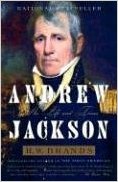
Loved it. I guess it helped the author to have a subject that led such an eventful, action-packed life. The author kept a nice balance between too much and not enough detail.
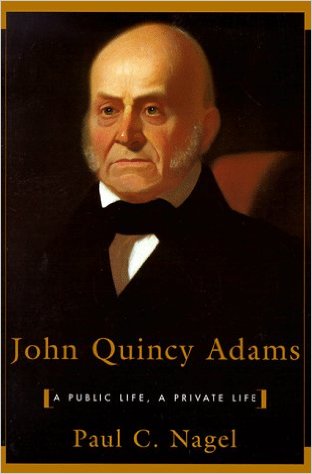
Quincy was a man conflicted between the desire for a contemplative intellectual life and the rough-and-tumble world of politics. He never reconciled the two, and a result was often unhappy.
This book was a bit of a snooze. As a man of words not action, his life just wasn’t that interesting.
 As every schoolboy knows, reading classic works of literature is often a bore. Dirda suggests a large selections of works know as classics that are actually fun to read. I plan to a few, see how it goes. I tried “True History” by Lucian. Although it was interesting to find that a writer from the 2nd century had much the same sensibilities as a modern writer – sarcasm, wit, blasphemy, sex – I didn’t find it especially fun to read. I’ll keep trying.
As every schoolboy knows, reading classic works of literature is often a bore. Dirda suggests a large selections of works know as classics that are actually fun to read. I plan to a few, see how it goes. I tried “True History” by Lucian. Although it was interesting to find that a writer from the 2nd century had much the same sensibilities as a modern writer – sarcasm, wit, blasphemy, sex – I didn’t find it especially fun to read. I’ll keep trying.
 When Toyota was a small company, its goal was to sell inexpensive cars in Japan. Because it was small, it couldn’t use economies of scale to compete. Instead, they develop a series of techniques to eliminate waste and speed-up development time. These techniques eventually were called “Lean”, and later where incorporated in the Agile software development methodology.
When Toyota was a small company, its goal was to sell inexpensive cars in Japan. Because it was small, it couldn’t use economies of scale to compete. Instead, they develop a series of techniques to eliminate waste and speed-up development time. These techniques eventually were called “Lean”, and later where incorporated in the Agile software development methodology.
The thing that really struck me about this book is it’s economy and logical style. Little fluff, very clear, well thought-out.

Interesting story of Larry Page and Sergey Brin’s invention of Google, now one of the worlds most unusual and successful companies.
 Finished this excellent biography of Benjamin Franklin. Franklin is a fascinating figure in American history. His rags-to-riches story is what I found most interesting about Franklin. Whereas the other founding fathers had at least some advantages from birth, Franklin did not. From nothing he became a prominent author, businessman, government official, diplomat, and scientist. Not to mention being essential to the forming of the Constitution.
Finished this excellent biography of Benjamin Franklin. Franklin is a fascinating figure in American history. His rags-to-riches story is what I found most interesting about Franklin. Whereas the other founding fathers had at least some advantages from birth, Franklin did not. From nothing he became a prominent author, businessman, government official, diplomat, and scientist. Not to mention being essential to the forming of the Constitution.
 Book caught my eye at the library. Thought it would be cool to learn about Steampunk. I was wrong.
Book caught my eye at the library. Thought it would be cool to learn about Steampunk. I was wrong.
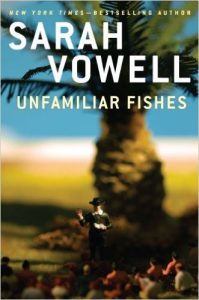 Loved her book of essays, Partly Cloudy Patriot, but not so crazy about this one.
Loved her book of essays, Partly Cloudy Patriot, but not so crazy about this one.
Unfamiliar Fishes is a short book about the history of Hawaii. One sentence summary: Ruled by a monarchy for many years, visited by many foreigner sailors, and then by Christian missionaries, whose ancestors gradually took over the government, which lead eventually to it being annexed by the United States. Like most history, a very sordid story.
In my opinion Vowell get’s a bit carried away with mundane details that most people, including me, won’t find all that interesting. On the other hand, it’s an unfamiliar story, I learned a lot.
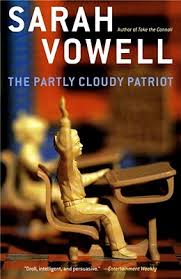 Sometimes you read a book by an author and you make a real connection with his work. For example, I pretty much love everything Hunter Thompson wrote. I have nothing in common with him on a personal level. Love books but I don’t think I’d like to have spent time with him.
Sometimes you read a book by an author and you make a real connection with his work. For example, I pretty much love everything Hunter Thompson wrote. I have nothing in common with him on a personal level. Love books but I don’t think I’d like to have spent time with him.
Other times, you read a book and you really make a connection with the author. I felt that way with this book. The contents – a series of short essays mostly on historical topics – is interesting, but from the stories I got the sense she’s a lot like me – a fellow weirdo.
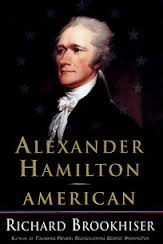 Alexander Hamilton in a few words: Amazing rags-to-riches story, from West Indies born orphan boy, to aide George Washington, a lawyer, and perhaps the greatest Federalist of all. Weird ideas about the Constitution, a generally negative opinion of the abilities of the common man, but undoubtedly correct about the need for a strong federal government, banking system, standing army.
Alexander Hamilton in a few words: Amazing rags-to-riches story, from West Indies born orphan boy, to aide George Washington, a lawyer, and perhaps the greatest Federalist of all. Weird ideas about the Constitution, a generally negative opinion of the abilities of the common man, but undoubtedly correct about the need for a strong federal government, banking system, standing army.
Like many great men, Hamilton also had great weaknesses. A crazy affair with a married woman, an affair he continued even after she blackmailed him. A tendency towards backstabbing to get his way. As Oliver Wolcott said: “…on certain points, the most enlightened men are governed by the most unsound reasons.”
Just finished this biography of Thomas Jefferson. It’s one of those biographies that focus less than I’d prefer on the facts of Jefferson’s life and more on what the author thinks about Jefferson, or what the author thinks Jefferson might have thought.
Jefferson was a real weirdo, my kind of guy. Walked around singing to himself all the time. So shy he couldn’t speak in front of large groups, so instead wrote all his ideas down, which was good for history but must have been frustrating for his contemporaries. Two terms as president and almost never spoke to Congress, and not often with his own cabinet.
Bummer to learn that the “small government” and “states rights” mumbo-jumbo GOP-speak started with Jefferson. At least Jefferson held these ideas because he was afraid of a return of a monarchy, not because he wanted shut down government assistance programs.
Continuing my study of the founding fathers. The book is basically two mini-biographies of Madison and Monroe, and is especially focused on how Madison shaped the Constitution, and how Monroe almost derailed him by running against him for a seat in the House of Representatives. Madison won, barely, and went on to write the Bill of Rights and eventually got most of it passed through Congress.
Finished this book yesterday. After reading David McCullough’s eight hundred pager on John Adams, it was a relief to read Hart’s reasonably concise biography of James Monroe.
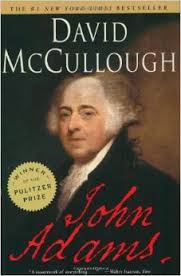 I’ve read several of McCullough’s books – The Great Bridge, Truman, Johnstown Flood. Always enjoyed them. I’ve been struggling a bit with this one. I don’t think it’s the book, I think I’m just tired of the subject. I just finished a biography of George Mason and another of George Washington, so the information is getting repetitive.
I’ve read several of McCullough’s books – The Great Bridge, Truman, Johnstown Flood. Always enjoyed them. I’ve been struggling a bit with this one. I don’t think it’s the book, I think I’m just tired of the subject. I just finished a biography of George Mason and another of George Washington, so the information is getting repetitive.
Few tidbits about the book……